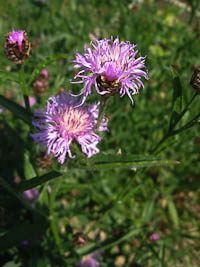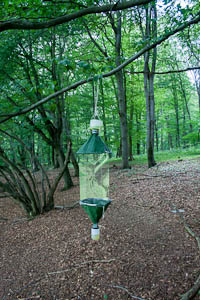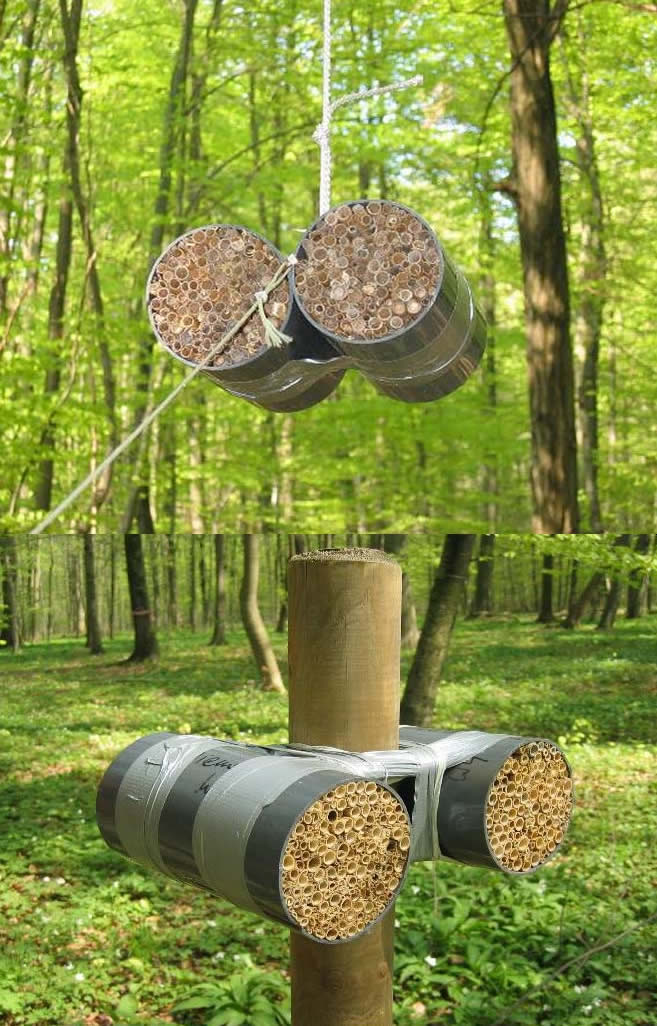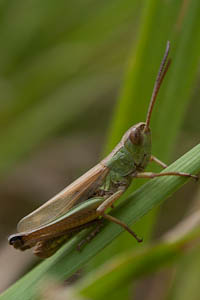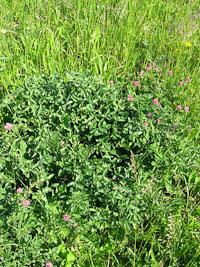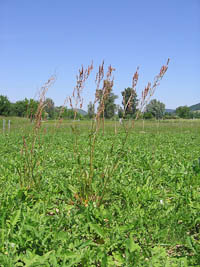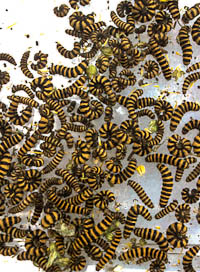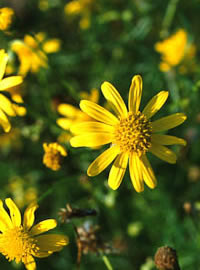|
||
| site search by freefind |
Publication list of Christoph Scherber
last edited on 13th July 2025
133 peer-reviewed publications; 6 publications highlighted by Faculty of 1000 (now Faculty Opinions); c. 80 other publications, > 8000 citations; Covered in >50 newspaper articles, magazines and other media.
![]() You can now also download the complete list as a single PDF file [last version: Oct 2024]
You can now also download the complete list as a single PDF file [last version: Oct 2024]
Top 5 publications (use tabs above for complete list)
![]() Scherber C et al. (2010) Bottom-up effects of plant diversity on multitrophic interactions in a biodiversity experiment. Nature 468, 553–556
Scherber C et al. (2010) Bottom-up effects of plant diversity on multitrophic interactions in a biodiversity experiment. Nature 468, 553–556
DOI: http://dx.doi.org/10.1038/nature09492
see also Supplementary material S1 and S2
![]()
![]() Stevnbak K, Scherber C et al. (2012) Interactions between above- and belowground organisms modified in climate change experiments. Nature Climate Change (published online 20th May 2012)
Stevnbak K, Scherber C et al. (2012) Interactions between above- and belowground organisms modified in climate change experiments. Nature Climate Change (published online 20th May 2012)
![]()
DOI: http://dx.doi.org/10.1038/nclimate1544
![]()
![]() Scherber C, Heimann J, Köhler G, Mitschunas N, Weisser WW (2010) Functional identity versus species richness: herbivory resistance in plant communities. Oecologia 163:707-717
Scherber C, Heimann J, Köhler G, Mitschunas N, Weisser WW (2010) Functional identity versus species richness: herbivory resistance in plant communities. Oecologia 163:707-717
![]() © Springer (Open Access by institutional agreement); DOI: http://dx.doi.org/10.1007/s00442-010-1625-1
© Springer (Open Access by institutional agreement); DOI: http://dx.doi.org/10.1007/s00442-010-1625-1
![]() Scherber C, Milcu A, Partsch S, Scheu S, Weisser, WW (2006) The effects of plant diversity and insect herbivory on performance of individual plant species in experimental grassland.
Journal of Ecology 94:922-931.
Scherber C, Milcu A, Partsch S, Scheu S, Weisser, WW (2006) The effects of plant diversity and insect herbivory on performance of individual plant species in experimental grassland.
Journal of Ecology 94:922-931.
DOI: http://dx.doi.org/10.1111/j.1365-2745.2006.01144.x
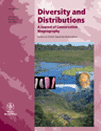
![]() Scherber C, Crawley MJ, Porembski S (2003) The effects of herbivory and competition on the invasive alien plant Senecio inaequidens (Asteraceae). Diversity and Distributions 9:415-426.
Scherber C, Crawley MJ, Porembski S (2003) The effects of herbivory and competition on the invasive alien plant Senecio inaequidens (Asteraceae). Diversity and Distributions 9:415-426.
DOI: http://dx.doi.org/10.1046/j.1472-4642.2003.00049.x
Peer-reviewed publications
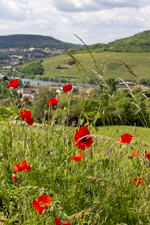
[133] Leaving synthetic pesticides behind
by Wan N-Fm Woodcock BA, Scherber C, Wyckhuys KAG, Zhong L, Qian X
Science 388: 712-713
DOI: https://doi.org/10.1126/science.adv7806
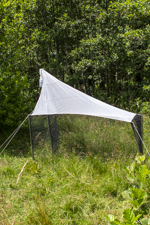
[132] Identifying conservation hotspots and assessing species commonness and rarity: Baseline arthropod diversity in German nature reserves via national Malaise trap monitoring
by Thomas LJ, Zizka MA, Noll NW, Scherges AM, Posanski M, Bourlat SJ, Rulik B, Mühlethaler R, Lehman GUC, Koethe S, Scherber C, Schäffler L (2025)
Insect Conservation and Diversity (published online)
DOI: https://doi.org/10.1111/icad.12818
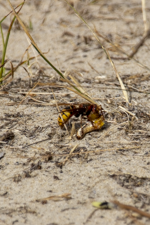
[131] Understanding biodiversity effects on trophic interactions with a robust approach to path analysis
by Wang Y-Q, Shi D-P, Scherber C, Woodcock BA, Hu Y-Q, Wan N-F
Cell Reports Sustainability 2(5), 100362
DOI: https://doi.org/10.1016/j.crsus.2025.100362
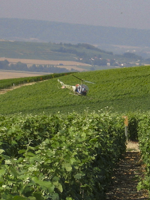
[130] Pesticides have negative effects on non-target organisms
by Wan N-F, Fu L, Dainese M, Kiær LP, Hu Y-Q, Xin, F, Goulson D, Woodcock BA, Vanbergen AJ, Spurgeon DJ, Shen S, Scherber C
Nature Communications 16, Article number: 1360 (2025)
DOI: https://doi.org/10.1038/s41467-025-56732-x
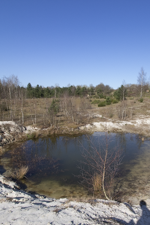
[129] Environmental DNA supports importance of heterogeneous pond landscapes for arthropod diversity conservation
by Zizka V, Schwesig K, Engel N, Hölzel N, Scherber C
Ecosphere (published online)
DOI: https://doi.org/10.1002/ecs2.70171
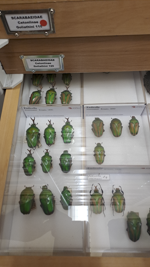
[128] Morphospace disparity and species diversity in Sri Lankan phytophagous scarab beetles—A comparison by forest types, altitude and sites
by Ranasinghe SL, Eberle J, Benjamin SP, Scherber C, Ahrens D
Ecological Entomology(published online)
DOI: https://doi.org/10.1111/een.13427
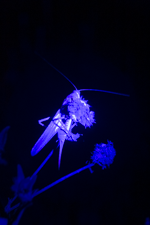
[127] The Clockwork of Insect Activity: Advancing Ecological Understanding through Automation
by Kirse A, Wittenhorst MA, Scherber C, Posanski M, Scherges A, Zizka V, Ott D, Noll NW, Wägele JW (2025)
Journal of Animal Ecology (published online)![]()
DOI: https://doi.org/10.1111/1365-2656.14246
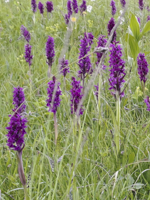
[126] Plant diversity facets differentially affect energy dynamics in grasslands depending on trophic contexts,
by Buzhdygan OY, Tietjen B, Petermann JS, Eisenhauer N, Hines J, Schmid B, Baldauf S, Ebeling A, Scherber C, Buchmann N, Borrett SR, de Kroon H, Weisser WW, Meyer ST (2025)
Ecological Monographs (published online)
DOI: https://doi.org/10.1002/ecm.70004

[125] Comparing eDNA and transect methods for aquatic biodiversity assessment in lakes and ponds
by Schwesig K, Zizka V, Scherber C, Hölzel N (2025)
Molecular Ecology Resources (published online),
DOI: : https:\\doi.org\\10.1111/1755-0998.14060![]()
2024

by Chiavassa JA, Kraft M, Noack P, Walther S, Kirse A, Scherber C
Ecology and Evolution, published online 28 November 2024
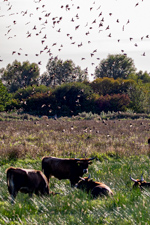
[123] Joint environmental and social benefits from diversified agriculture
by Rasmussen LV, Grass I, Mehrabi Z, Smith OM, Bezner-Kerr R, Blesh J, Garibaldi LA, Isaac ME, Kennedy CM, Wittman H, Batáry P, Buchori D, Cerda R, Chará J, Crowder DW, Darras K, DeMaster K, Garcia K, Gómez M, Gonthier D, Hidayat P, Hipólito J, Hirons M, Hoey L, James D, John I, Jones AD, Karp DS, Kebede Y, Kerr CB, Klassen S, Kotowska M, Kreft H, Llanque R, Levers C, Lizcano DJ, Lu A, Madsen S, Marques RN, Martins PB, Melo A, Nyantakyi-Frimpong H, Olimpi EM, Owen JP, Pantevez H, Qaim M, Redlich S, Scherber C, Sciligo AR, Snapp S, Snyder WE, Steffan-Dewenter I, Stratton AE, Taylor JM, Tscharntke T, Valencia V, Vogel C, Kremen C (2024)
2023
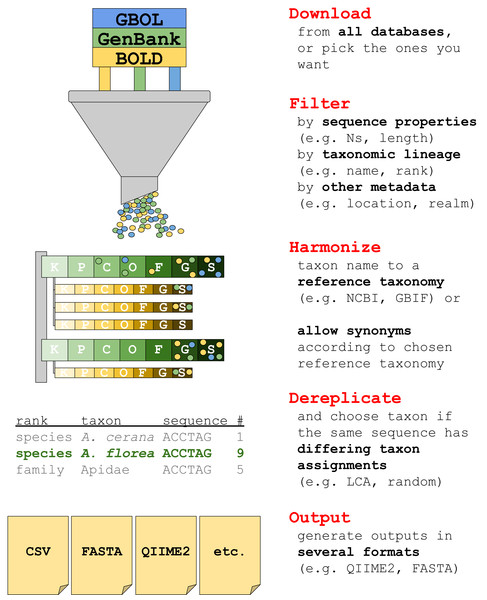
[122] taxalogue: a toolkit to create comprehensive CO1 reference databases
by Noll N, Scherber C, Schäffler L (2023)
PeerJ 11, e16253
doi: https://doi.org/10.7717/peerj.16253
![]()

by Köthe S, Bakanov N, Brühl CA, Eichler L, Fickel T, Gemeinholzer B, Hörren T, Jurewicz A, Lux A, Meinel G, Mühlethaler R, Schäffler L, Scherber C, Schneider FD, Sorg M, Swenson SJ, Terlau W, Turck A, Lehmann GUC (2023)
Environmental Sciences Europe 35: 102
doi: https://doi.org/10.1186/s12302-023-00813-5
![]()
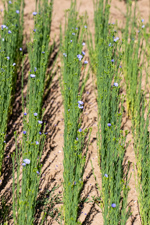
[120] Multi-species crop mixtures increase insect biodiversity in an intercropping experiment
by Brandmeier J, Reininghaus H, Scherber C (2023)
Ecological Solutions and Evidence 4:e12267
![]()
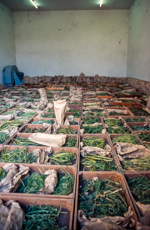
[119] Convergent patterns in multitrophic biodiversity effects on yield across ecosystems
by Scherber C (2023)
Science China-Life Sciences 66: 2697-2699
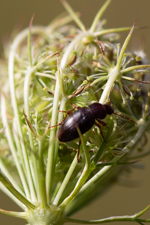
[118] Microhabitat conditions remedy heat stress effects on insect activity
by Terlau JF, Brose U, Eisenhauer N, Amyntas A, Boy T, Dyer A, Gebler A, Hof C, Liu T, Scherber C, Schlagel UE, Schmidt A, Hirt MR (2023)
Global Change Biology 29:3747-3758
![]()
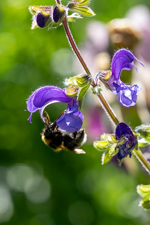
[117] Reply to: Plant traits alone are good predictors of ecosystem properties when used carefully
by van der Plas F, Schroder-Georgi T, Weigelt A, Barry K, Meyer S, Alzate A, Barnard RL, Buchmann N, de Kroon H, Ebeling A, Eisenhauer N, Engels C, Fischer M, Gleixner G, Hildebrandt A, Koller-France E, Leimer S, Milcu A, Mommer L, Niklaus PA, Oelmann Y, Roscher C, Scherber C, Scherer-Lorenzen M, Scheu S, Schmid B, Schulze ED, Temperton V, Tscharntke T, Voigt W, Weisser W, Wilcke W, Wirth C (2023)
Nature Ecology and Evolution 7: 335-336
2022
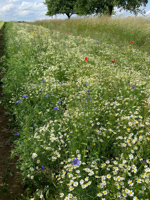
[116] Agroecology – Reconciling biodiversity and production in farming systems.
by Scherber C (2023)
Basic and Applied Ecology 65:62-66
![]()
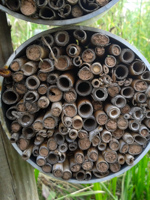
by
Dürrbaum E, Fornoff F, Scherber C, Vesterinen EJ, Eitzinger B (2022) Molecular Ecology 32: 6449-6460
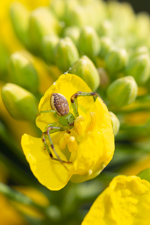
[114] Plant genetic diversity affects multiple trophic levels and trophic interactions.
by Wan NF, Fu L, Dainese M, Hu YQ, Podenphant Kiaer L, Isbell F, Scherber C (2022)
Nature Communications 13:7312
![]()
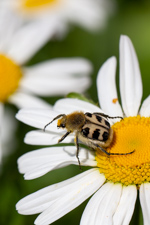
[113] Improving insect conservation management through insect monitoring and stakeholder involvement.
by Köthe S, Schneider FD, Bakanov N, Brühl CA, Eichler L, Fickel T, Gemeinholzer B, Hörren T, Lux A, Meinel G, Schäffler L, Scherber C, Sorg M, Swenson SJ, Terlau W, Turck A, Zizka VMA, Lehmann GUC, Mühlethaler R (2022)
Biodiversity and Conservation 32: 691-713
![]()

[112] The lipidome of an omnivorous insect responds to diet composition and social environment.
by Gutierrez Y, Fresch M, Scherber C, Brockmeyer J (2022)
Ecology and Evolution 12: e9497
![]()
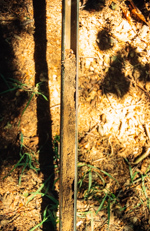
[111] Understanding and Monitoring Chemical and Biological Soil Degradation.
by Saljnikov E, Lavrishchev A, Römbke J, Rinklebe J, Scherber C, Wilke B-M, Tóth T, Blum WEH, Behrendt U, Eulenstein F, Mirschel W, Meyer BC, Schindler U, Urazaliev K, Mueller L (2022)
In: Saljnikov E, Mueller L, Lavrishchev A, Eulenstein F (eds) Advances in Understanding Soil Degradation. Springer International Publishing, Cham, pp 75-124

by Hörren T, Sorg M, Hallmann CA, Zizka VMA, Ssymank A, Noll NW, Schäffler L, Scherber C (2022)
bioRxiv:2022.2001.2025.477751 [preprint, not peer-reviewed]
![]()
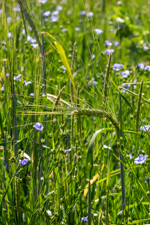
[109] Intercropping drives plant phenotypic plasticity and changes in functional trait space.
by Ajal J, Kiær LP, Pakeman RJ, Scherber C, Weih M (2022)
Basic and Applied Ecology 61:41-52
![]()
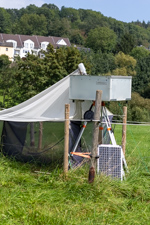
[108] Towards a multisensor station for automated biodiversity monitoring
by Wägele JW, Bodesheim P, Bourlat SJ, Denzler J, Diepenbroek M, Fonseca V, Frommolt K-H, Geiger MF, Gemeinholzer B, Glöckner FO, Haucke T, Kirse A, Kölpin A, Kostadinov I, Kühl HS, Kurth F, Lasseck M, Liedke S, Losch F, Müller S, Petrovskaya N, Piotrowski K, Radig B, Scherber C, Schoppmann L, Schulz J, Steinhage V, Tschan GF, Vautz W, Velotto D, Weigend M, Wildermann S (2022)
Basic and Applied Ecology 59: 105-138
![]()
2021
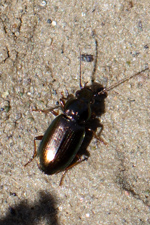
[107] Functional trait dimensions of trophic metacommunities
by Bauer B, Kleyer M, Albach DC, Blasius B, Brose U, Ferreira-Arruda T, Feudel U, Gerlach G, Hof C, Kreft H, Kuczynski L, Lõhmus K, Moorthi S, Scherber C, Scheu S, Zotz G, Hillebrand H (2021) Functional trait dimensions of trophic metacommunities. Ecography 44: 1486-1500
Ecography, published online
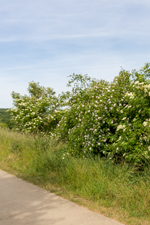
by Raatz L, Pirhofer Walzl K, Müller EH, Scherber C*, Joshi J* (shared senior authorship)
Ecology and Evolution, published online
![]()
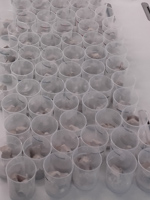
[105] A multifactorial proteomics approach to sex-specific effects of diet composition and social environment in an omnivorous insect
by Gutiérrez Y, Fresch M, Hellmann SL, Hankeln T, Scherber C, Brockmeyer J
Ecology and Evolution, published online 28 May 2021
![]()

by Hamer U, Meyer MUT, Meyer U-N, Radermacher A, Götze P, Koch H-J, Scherber C (2021)
Basic and Applied Ecology 53:143-153
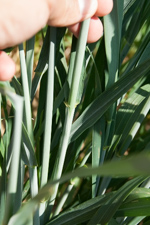
Weih M, Karley AJ, Newton AC, Kiær LP, Scherber C, Rubiales D, Adam E, Ajal J, Brandmeier J, Pappagallo S, Villegas-Fernández A, Reckling M, Tavoletti S (2021)
Agriculture 11:255
![]()
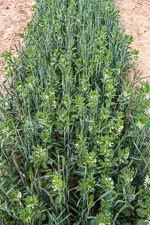
by Brandmeier J, Reininghaus H, Pappagallo S, Karley AJ, Kiær LP, Scherber C (2021)
Basic and Applied Ecology 53: 26-38
![]()
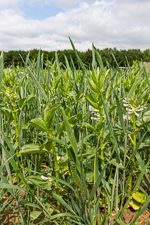
[101] Calibrating and testing APSIM for wheat-faba bean pure cultures and intercrops across Europe.
by Berghuijs HNC, Weih M, van der Werf W, Karley AJ, Adam E, Villegas JM, Kiær LP, Newton AC, Scherber C, Tavoletti S, Vico G (2021)
Field Crops Research 2642019
2020

[100] Crop asynchrony stabilizes food production.
by Egli L, Schroter M, Scherber C, Tscharntke T, Seppelt R (2020)
Nature 588:E7-E12
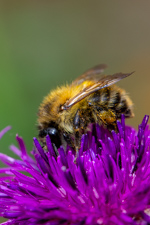
by Lami F, Bartomeus I, Nardi D, Beduschi T, Boscutti F, Pantini P, Santoiemma G, Scherber C, Tscharntke T, Marini L (2020)
Ecology Letters 24:288-297
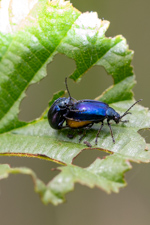
[98] Biodiversity enhances the multitrophic control of arthropod herbivory
by Barnes AD, Scherber C, Brose U, Borer ET, Ebeling A, Gauzens B, Giling DP, Hines J, Isbell F, Ristok C, Tilman D, Weisser WW, Eisenhauer N (2020)
Science Advances 6
![]()
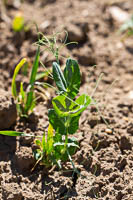
[97] Plant traits alone are poor predictors of ecosystem properties and long-term ecosystem functioning
by van der Plas F et al. (2020)

by Tiede J, Diepenbruck M, Gadau J, Wemheuer B, Daniel R & Scherber C
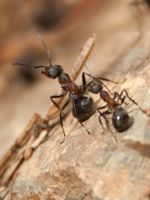
[95] Growth and survival of the superorganism: Ant colony macronutrient intake and investment
by Gutiérrez Y, Phung T, Mumma H, Ambrose-Winters A, Scherber C, Smith CR (2020)
Ecology and Evolution 10: 7901-7915
![]()
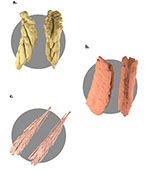
by Gutiérrez Y, Ott D, Scherber C (2020)
Scientific Reports 10:7300
![]()
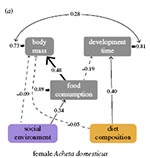
by Gutiérrez Y, Fresch M, Ott D, Brockmeyer J, Scherber C (2020)
![]()
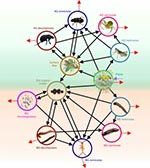
[92] Biodiversity increases multitrophic energy use efficiency, flow and storage in grasslands
by Buzhdygan OY et al. (2020)
Nature Ecology & Evolution 4: 393–405
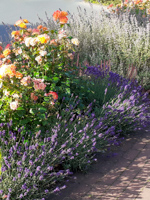
by Udy KL, Reininghaus H, Scherber C, Tscharntke T (2020)
Ecosphere 11:e03020
![]()
2019
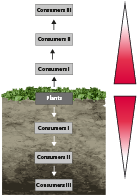
by Hines J, Ebeling A, Barnes A, Brose U, Scherber C, Scheu S, Tscharntke T, Weisser WW, Giling DP, Klein AM, Eisenhauer N (2019)
Advances in Ecological Research 61 (published online)
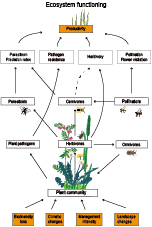
[89] A multitrophic perspective on biodiversity–ecosystem functioning research
by Eisenhauer N, Schielzeth H, Barnes AD, Barry K, Bonn A, Brose U, Bruelheide H, Buchmann N, Buscot F, Ebeling A, Ferlian A, Freschet GT, Giling DP, Hättenschwiler S, Hillebrand H, Hines J, Isbell F, Koller-France E, König-Ries B, de Kroon H, Meyer ST, Milcu A, Müller J, Nock CE, Petermann JS, Roscher C, Scherber C, Scherer-Lorenzen M, Schmid B, Schnitzer SA, Schuldt A, Tscharntke T, Türke M, van Dam NM, van der Plas F, Vogel A, Wagg C, Wardle DA, Weigelt A, Weisser WW, Wirth C, Jochum M (2019)
Advances in Ecological Research 61 (published online)
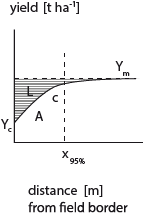
by Raatz L, Bacchi N, Pirhofer-Walzl K, Glemnitz M, Müller MEH, Joshi J*, Scherber C* (2019)
Ecology and Evolution 9(13), pp. 7838-7848
*shared senior authorship
![]()
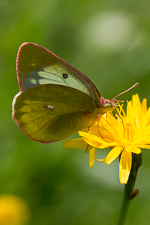
by Kormann U, Scherber C, Batáry P, Tscharntke T, Rösch V (2019)
Landscape Ecology 34(5), pp. 1045-1056
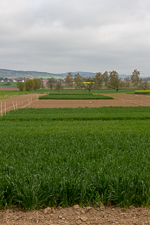
[86] Crop identity and memory effects on aboveground arthropods in a long-term crop rotation experiment
by Meyer M, Ott D, Götze P, Koch HJ, Scherber C (2019)
Ecology and Evolution 9(12), pp. 7307-7323
![]()
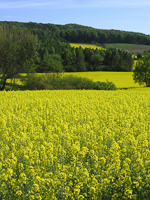
[85] Insektenvielfalt und ökologische Prozesse in Agrar- und Waldlandschaften
by Scherber C, Reininghaus H, Brandmeier J, Everwand G, Gagić V, Greiwe T, Kormann UG, Meyer M, Nagelsdiek SW, Rösch V, Sobek-Swant S, Thies C, Ott D
Natur und Landschaft 94:6/7: 245-254
2018
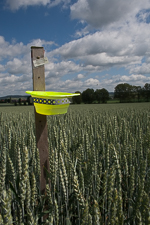
by Scherber C, Beduschi T, Tscharntke T (2018).
Landscape Ecology 34(5), pp. 1057-1067
![]()
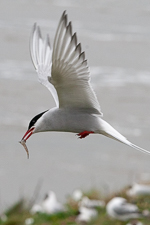
[83] A barrier island perspective on species-area relationships
by Scherber C, Andert H, Niedringhaus R, Tscharntke T (2018).
Ecology and Evolution 8(24):12879-12889
![]()
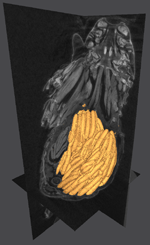
by Gutiérrez Y, Ott D, Töpperwien M, Salditt T, Scherber C (2018).
Ecology and Evolution 8(15):7717-7732
![]()
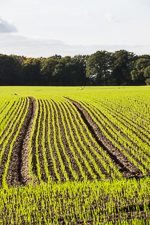
by Egli L, Meyer C, Scherber C, Kreft H, Tscharntke T (2018)
Global Change Biology 24(5):2212-2228
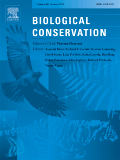
by Beduschi T, Kormann U, Tscharntke T, Scherber C (2018)
Biological Conservation 221: 59-66
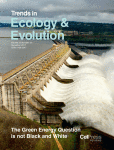
[79] Energy flux: The link between multitrophic biodiversity and ecosystem functioning
by Barnes A, Jochum M, Lefcheck JS, Eisenhauer N, Scherber C, O´Connor MI, de Ruiter P, Brose U (2018)
Trends in Ecology & Evolution 33(3):186-197
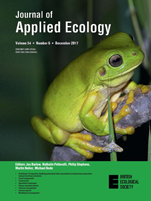
by Kormann U, Hadley A, Tscharntke T, Betts M, Robinson W, Scherber C (2018)
Journal of Applied Ecology 55(3):1288-1298
2017
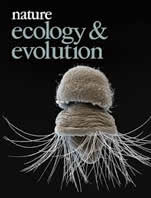
[77] Biodiversity–multifunctionality relationships depend on identity and number of measured functions
by Meyer S, Ptacnik R, Hillebrand H, Bessler H, Buchmann N, Ebeling A, Eisenhauer N, Engels C, Fischer M, Halle S, Klein AM, Oelmann Y, Roscher C, Rottstock T, Scherber C, Scheu S, Schmid B, Schulze ED, Temperton VM, Tscharntke T, Voigt W, Weigelt A, Wilcke W, Weisser WW (2017)
Nature Ecology & Evolution 2: 44-49
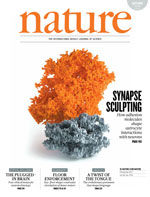
[76] Creation of forest edges has a global impact on forest vertebrates
by Pfeifer M, Lefebvre V, Peres CA, Banks-Leite C, Wearn OR, Marsh CJ, Butchart SHM, Arroyo-Rodríguez V, Barlow J, Cerezo A, Cisneros L, D’Cruze N, Faria D, Hadley A, Harris SM, Klingbeil BT, Kormann U, Lens L, Medina-Rangel GF, Morante-Filho JC, Olivier P, Peters SL, Pidgeon A, Ribeiro DB, Scherber C, Schneider-Maunoury L, Struebig M, Urbina-Cardona N, Watling JI, Willig MR, Wood EM, Ewers RM
Nature 551: 187-191
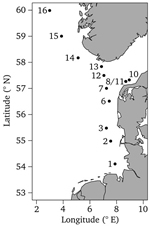
by Wemheuer B, Wemheuer F, Meier D, Billerbeck S, Giebel H-A, Simon M, Scherber C, Daniel R (2017)
Microorganisms 5 (4): 68.
![]()
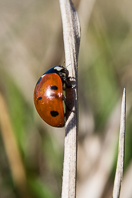
[74] Gut microbiomes of mobile predators vary with landscape context and species identity
by Tiede J, Scherber C, Mutschler J, McMahon KD, Gratton C (2017)
Ecology and Evolution 7:8545–8557
![]()
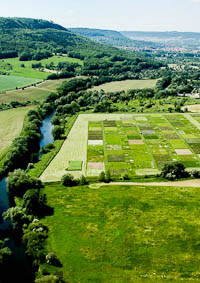
by Weisser WW et al. (2017)
Basic and
Applied Ecology 23: 1-73
2016
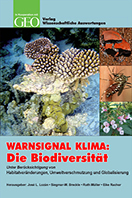
[72] Aktuelle Forschungsprojekte zu Klimawandel und Biodiversität
by Scherber C, Nitschke N, Marquard E (2016)
Buchkapitel in: J. Lozán et al. (eds.) Warnsignal Klima: Die Biodiversität
by Meyer ST et al. (2016)
Ecosphere (published online 20th December 2016)
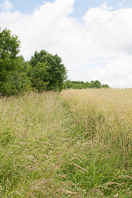
by Madeira F, Tscharntke T, Elek Z, Kormann U, Pons X, Rösch V, Samu F, Scherber C, Batáry P (2016)
Agriculture, Ecosystems and Environment 235: 127-133
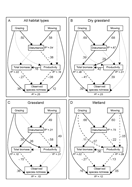
[69] Consistent drivers of plant biodiversity across managed ecosystems
by Minden V*, Scherber C*, Cebrian Piqueras MA, Trinogga J, Trenkamp A, Mantilla-Contreras J, Lienin P, Kleyer M (2016) [*equal contributions]
Philosophical Transactions of the Royal Society B 371: 20150284.
by Tiede J, Wemheuer B, Traugott M, Daniel R, Tscharntke T, Ebeling A, Scherber C (2016)
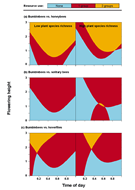
[67] Plant diversity increases spatio-temporal niche complementarity in plant-pollinator interactions
by Venjakob C, Klein AM, Ebeling A, Tscharntke T, Scherber C (2016)
Ecology and Evolution (published online 4 March 2016)
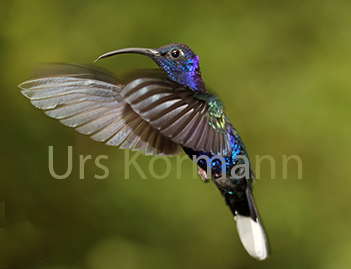 [66] Corridors restore animal-mediated pollination in fragmented tropical forest landscapes
[66] Corridors restore animal-mediated pollination in fragmented tropical forest landscapes
by Kormann U, Scherber C, Tscharntke T, Klein N, Larbig M, Valente J, Hadley A, Betts M (2016)
Proceedings of the Royal Society B, 283:20152347
download data from Dryad repository, http://dx.doi.org/10.5061/dryad.3702g
 [65] Networking Our Way to Better Ecosystem Service Provision
[65] Networking Our Way to Better Ecosystem Service Provision
by Bohan D et al. (2016)
Trends in Ecology & Evolution31 (2), 105-115
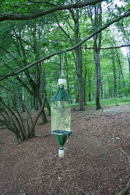
[64] Interacting effects of forest stratum, edge and tree diversity on beetles
by Normann C, Tscharntke T, Scherber C (2016)
Forest Ecology and Management 361: 421-431
2015
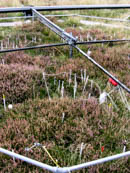
[63] Insect responses to interacting global change drivers in managed ecosystems
by Scherber C (2015)
Current Opinion in Insect Science 11: 56-62
by Mulder C, Bennett E, Bohan D, Bonkowski M, Carpenter SR, Chalmers R, Cramer W, Durance I, Eisenhauer N, Fontaine C, Haughton AJ, Hettelingh J-P, Hines J, Huston MA, Jeppesen E, Krumins JA, Ma A, Mace, GM, Mancinelli G, McLaughlin O, Naeem S, Pascual U, Peñuelas J, Pettorelli N, Pocock MJO, Raffaelli D, Rasmussen JJ, Rusch GM, Scherber C, Setälä H, Vacher C, Voigt W, Vonk AH, Wood SA, Woodward G (2015)
Advances in Ecological Research 53:1-53
by Hines J, van der Putten WH, de Deyn GB, Wagg C, Voigt W, Mulder C, Weisser WW, Engel J, Melian C, Scheu S, Birkhofer K, Ebeling A, Scherber C, Eisenhauer N (2015)
Advances in Ecological Research 53:161-199
 [60]
Landscape simplification filters species traits and drives biotic homogenization
[60]
Landscape simplification filters species traits and drives biotic homogenization
by Gámez-Virués S, Perović DJ, Gossner M, Börschig C, Blüthgen N, de Jong H, Simons NK, Klein AM, Krauss J, Maier G, Scherber C, et al. & Westphal C (2015).
Nature Communications 6: 8568
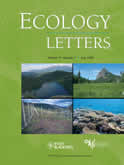 [59] Functional diversity across trophic levels determines herbivore impact on plant community biomass
[59] Functional diversity across trophic levels determines herbivore impact on plant community biomass
by Deraison H, Badenhausser I, Loeuille N, Scherber C, Gross N (2015)
Ecology Letters 18 (12): 1346-1355
![]()
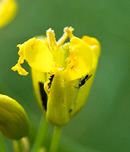
[58] Using multi-level generalized path analysis to understand herbivore and parasitoid dynamics in changing landscapes
by Beduschi T, Tscharntke T, Scherber C (2015)
Landscape Ecology 30 (10): 1975-1986
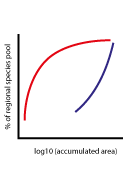
by Rösch V, Tscharntke T, Scherber C & Batary P (2015)
Oecologia 179:209-222
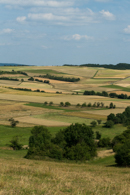
by Kormann U, Rösch V, Batáry P, Tscharntke T, Orci KM, Samu F, Scherber C (2015)
Diversity and Distributions21 (10): 1204-1217
2014
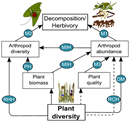
[55] Plant diversity impacts decomposition and herbivory via changes in aboveground arthropods
by Ebeling A, Meyer ST, Abbas M, Eisenhauer N, Hillebrand H, Lange M, Scherber C, Vogel A, Weigelt A, Weisser WW (2014)
PLoS One 9(9): e106529.
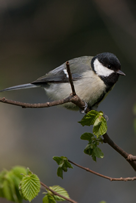
by Batary P, Fronczek S, Normann C, Scherber C, Tscharntke T (2014)
Forest Ecology and Management 319: 44-50.
The following graphical abstract nicely summarizes the sampling design we employed:
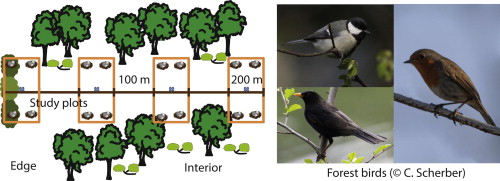
(created using Adobe Illustrator CS6)
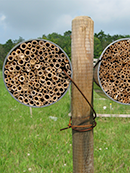
by Steckel J, Westphal C, Peters MK, Bellach M, Rothenwöhrer C, Erasmi S, Scherber C et al. (2014)
Biological Conservation 172: 56-64
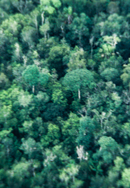 [52] BIOFRAG – A new database for analysing BIOdiversity responses to forest FRAGmentation.
[52] BIOFRAG – A new database for analysing BIOdiversity responses to forest FRAGmentation.
by Pfeifer M et al. (2014)
Ecology and Evolution 4: 1524-1537.
by Liu Y, Rothenwöhrer C, Scherber C, Batáry P, Elek Z, Steckel J, Erasmi S, Tscharntke , Westphal C (2014)
Landscape Ecology 29: 529-540.
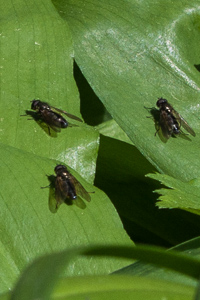
[50] Effects of tree and herb biodiversity on Diptera, a hyperdiverse insect order
by Scherber C, Vockenhuber E, Stark A, Meyer H, Tscharntke T (2014)
Oecologia 174: 1387-1400.
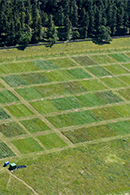
by Everwand G, Rösch V, Tscharntke T & Scherber C (2014)
BMC Ecology 14:1 (highlighted as Editor´s choice)
Appendix 1 Species list of the leafhoppers (Auchenorrhyncha) within the GrassMan experiment with food preferences according to Nickel & Remane (2002) and their overall abundance.
Appendix 2 ANOVA-table: Leafhopper species richness vs. Design.
Appendix 3 Mean and standard error of leafhopper responses to experimental design (treatments).
Appendix 4 Box plot showing the effects of herbicide application and cutting frequency on Shannon diversity of grass specialist leafhoppers.
Appendix 5 Experimental design of the Grassman Experiment, showing the Latin rectangle of 12 treatments in 6 replications. Gra- = graminoid reduced plots (=forb enhanced); Forb- =forb reduced (=graminoid enhanced); Con = Control (no herbicide application). The grey area around and between the plots is mown monthly. Plot size 15 m x 15 m, space between plots 3 m, between blocks 5 m
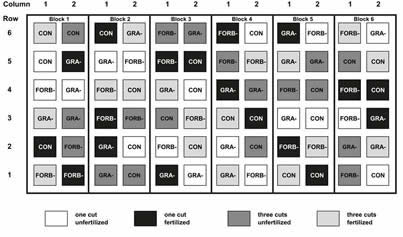
Appendix 6 F and p-values of generalized linear models testing for effects of sampling method in combination with design treatments.
Appendix 7 Comparison of the two different sampling methods in combination with functional group manipulation and cutting frequency. (a) leafhopper species richness; (b) leafhopper Shannon diversity (eH´); (c) leafhopper abundance.
Appendix 8 ANOVA-table: Leafhopper abundance vs. Design.
2013
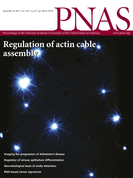 [48] Inter-annual variation in land-use intensity enhances grassland multidiversity
[48] Inter-annual variation in land-use intensity enhances grassland multidiversity
by Allan E, Bossdorf O, Dormann CF, Prati D, Gossner M, Tscharntke T, Blüthgen N, Bellach M, Birkhofer K, Boch S, Böhm S, Börschig C, Chatzinotas A, Christ S, Daniel R, Diekötter D, Fischer C, Friedl T, Glaser K, Hallman C, Hodac L, Hölzel N, Jung K, Klein AM, Klaus V, Kleinebecker T, Krauss J, Lange M, Morris EK, Müller J, Nacke H, Pašalic EK, Rillig M, Rothenwöhrer C, Schall P, Scherber C, et al. (2013)
Proceedings of the National Academy of Sciences 111: 308-313.
by Seidel D, Leuschner C, Scherber C et al. (2013)
Forest Ecology and Management 310: 366–374
DOI: http://dx.doi.org/10.1016/j.foreco.2013.08.058
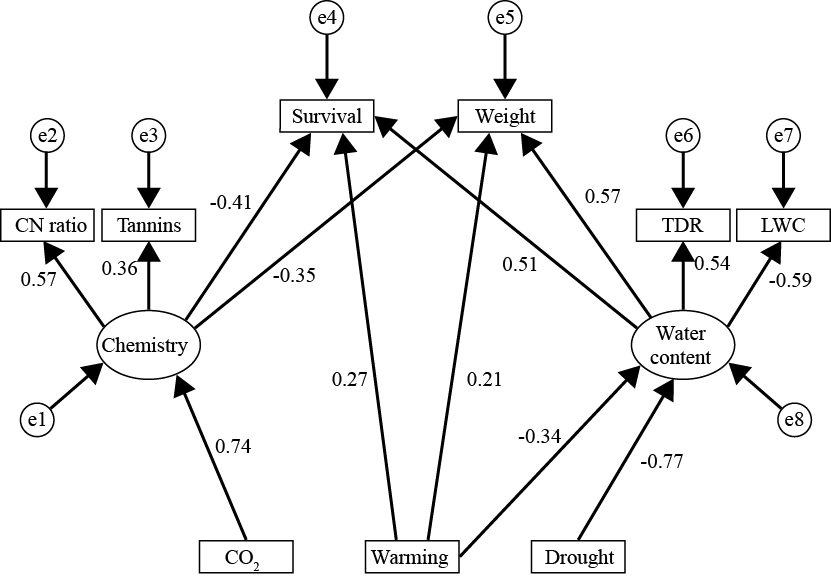 [46] Multi-factor climate change effects on insect herbivore performance
[46] Multi-factor climate change effects on insect herbivore performance
by Scherber C, Gladbach DJ, Stevnbak K, Karsten RJ, Schmidt IK, Michelsen A, Albert KR, Larsen KS, Mikkelsen TN, Beier C, Christensen S (2013)
Ecology and Evolution 3:1449–1460 (June 2013)
![]()
See also images published on Figshare:
Effects of the number of climate change drivers on herbivore performance. Christoph Scherber, David Gladbach, Karen Stevnbak, Rune Juelsborg Karsten, Inger Kappel Schmidt, Anders Michelsen, Kristian Rost Albert, Klaus Steenberg Larsen, Teis Nørgaard Mikkelsen, Claus Beier, Søren Christensen.
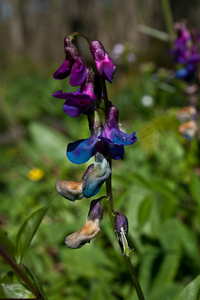
[45] Plant-animal interactions in two forest herbs along a tree and herb diversity gradient
by Vockenhuber E, Kabouw P, Tscharntke T, Scherber C (2013)
Plant Ecology and Diversity 6: 205-216.
[44] Functionally and phylogenetically diverse plant communities key to soil biota
by Milcu A, Allan E, Roscher C, Jenkins T, Bessler H, Buchmann N, Buscot F, Engels C, Flynn D, Gubsch M, Lipowsky A, Renker C, Scherber C, Schmid B, Schulze E.D., Thebault E, Weigelt A, Weisser W.W., Scheu S & Eisenhauer N (2013)
Ecology 94:1878–1885.
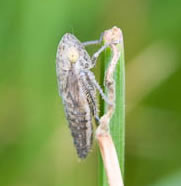 [43] Landscape composition, connectivity and fragment size drive effects of grassland fragmentation on insect communities
[43] Landscape composition, connectivity and fragment size drive effects of grassland fragmentation on insect communities
by
Rösch V, Tscharntke T, Scherber C, Batáry P (2013)
Journal of Applied Ecology 50:387–394.
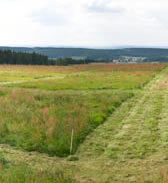 [42] Slug responses to grassland cutting and fertilization in a plant functional group removal experiment
[42] Slug responses to grassland cutting and fertilization in a plant functional group removal experiment
by Everwand G, Scherber C, Tscharntke T (2013)
Acta Oecologica 48:62–68.
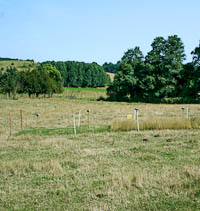
[41] Grassland management for stem-boring insects: Abandoning small patches is better than reducing overall intensity
by Rothenwöhrer C, Scherber C, Tscharntke T (2013)
Agriculture, Ecosystems and Environment 167:38–42
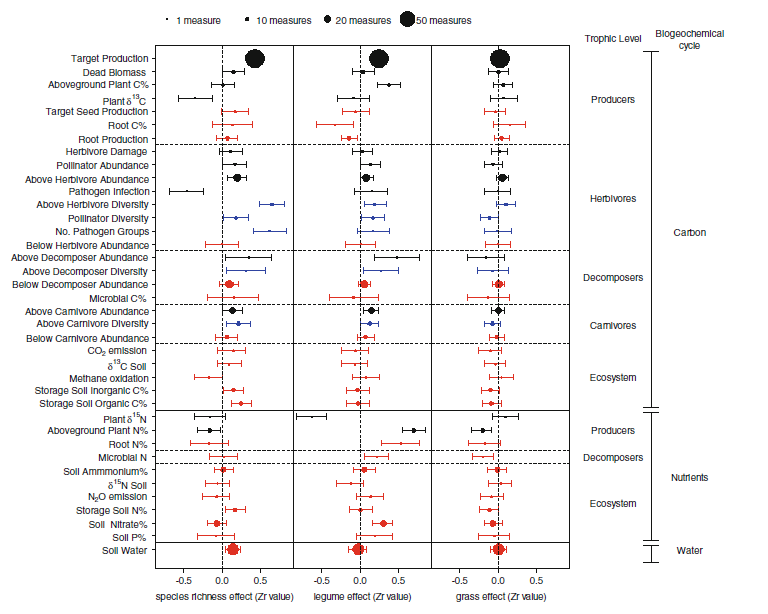 [40] A comparison of the strength of biodiversity effects across multiple functions
[40] A comparison of the strength of biodiversity effects across multiple functions
by Allan E, Weisser W, Fischer M, Schulze E, Weigelt A, Roscher C, Baade J, Barnard RL, Beßler H, Buchmann N, Ebeling A, Eisenhauer N, Engels C, Fergus AJF, Gleixner G, Gubsch M, Halle S, Klein AM, Kertscher I, Kuu A, Lange M, Le Roux X, Meyer S, Migunova VD, Milcu A, Niklaus PA, Oelmann Y, Pašalić E, Petermann JS, Poly F, Rottstock T, Sabais A, Scherber C et al. (2013)
Oecologia 173: 223-237.
2012
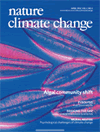
[39] Interactions between above- and belowground organisms modified in climate change experiments
by Stevnbak K§, Scherber C§*, Gladbach D, Beyer C, Mikkelsen TN & S. Christensen (2012)
Nature Climate Change 2, 805–808.
§equal contributions;
*corresponding author
By experimentally manipulating atmospheric carbon dioxide concentration, drought, air and soil temperature, and herbivory simultaneously, this study provides evidence that climate change affects interactions between above- and belowground organisms through changes in nutrient availability under field conditions.
![]()
see also Supplementary Material

[38] Landscape-moderated bird nest predation in hedges and forest edges
by Ludwig M, Schlinkert H, Holzschuh A, Fischer C, Scherber C, Trnka A, Tscharntke T, Batáry P (2012).
Acta Oecologica 45: 50–56.
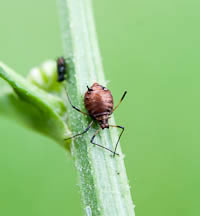
by Gagic V, Hänke S, Thies C, Scherber C, Tomanovic Z, Tscharntke T (2012)
Oecologia 170:1099-109.
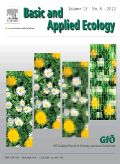 [36] A quantitative index of land-use intensity in grasslands: integrating mowing, grazing and fertilization
[36] A quantitative index of land-use intensity in grasslands: integrating mowing, grazing and fertilization
by Blüthgen N, Dormann CF, Prati D, Klaus VH, Kleinebecker T, Hölzel N, Alt F, Boch S, Gockel S, Hemp A, Müller J, Nieschulze J, Renner SC, Schöning I, Schumacher U, Socher SA, Wells K, Birkhofer K, Buscot F, Oelmann Y, Rothenwöhrer C, Scherber C, Tscharntke T, Weiner CN, Fischer M, Kalko EKV; Linsenmair KE, Schulze ED, Weisser WW (2012)
Basic and Applied Ecology 13: 207–220.
by Hudewenz A, Klein AM, Scherber C, Stanke L, Tscharntke T, Vogel A, Weigelt A, Weisser WW, Ebeling A (2012)
Biological Conservation 150: 42-52
[34] Combining biodiversity conservation with agricultural intensification
by Tscharntke T, Batáry P, Clough Y, Kleijn D, Scherber C, Thies C, Wanger TC, Westphal C (2012)
Book chapter in: Lindenmayer D, Cunningham S, Young A (2012) Land Use Intensification. Effects on Agriculture, Biodiversity and Ecological Processes.
CRC Press / CSIRO Publishing, ISBN 9780643104075. Also available as an e-book
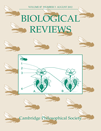 [33] Landscape moderation of biodiversity patterns and processes - eight hypotheses
[33] Landscape moderation of biodiversity patterns and processes - eight hypotheses
by Tscharntke T, Tylianakis J, Rand T, Didham R, Fahrig L, Batary P, Bengtsson J, Clough Y, Crist T, Dormann C, Ewers R, Holt R, Holzschuh A, Klein A, Kremen C, Landis D, Laurance W, Lindenmayer D, Scherber C, Sodhi N, Steffan-Dewenter I, Thies C, van der Putten W, Westphal C (2012)
Biological Reviews 87: 661–685
![]()
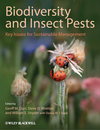 [32] Scale effects in biodiversity and biological control: methods and statistical analysis
[32] Scale effects in biodiversity and biological control: methods and statistical analysis
by Scherber C, Lavandero B, Meyer KM, Perovic D, Visser U, Wiegand K, Tscharntke T (2012).
pp. 123-138 in: Biodiversity and Insect Pests: Key Issues for Sustainable Management, First Edition. Edited by Geoff M. Gurr, Steve D. Wratten, William E. Snyder, Donna M.Y. Read. © 2012 John Wiley & Sons, Ltd.
Published 2012 by John Wiley & Sons, Ltd. (published online 15 May 2012).
DOI: http://dx.doi.org//10.1002/9781118231838.ch8
Download artwork from this chapter as PowerPoint slides
Download tables of this chapter as a pdf file
You are free to download these slides for your own use and teaching purposes. For all other uses please contact the Wiley Permissions Department: permissionsuk@wiley.com
by Brown G, Scherber C, Ramos P, Ebrahim EK (2012)
Flora - Morphology, Distribution, Functional Ecology of Plants 207: 503-511
2011
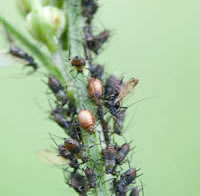 [30] The relationship between agricultural intensification and biological control: experimental tests across Europe
[30] The relationship between agricultural intensification and biological control: experimental tests across Europe
by Thies C, Haenke S, Scherber C, Bengtsson J, Bommarco R, Clement LW, Ceryngier P, Dennis C, Emmerson M, Gagic V, Hawro V, Liira J, Weisser WW, Winqvist C, Tscharntke T (2011).
Ecological Applications 21: 2187-2196
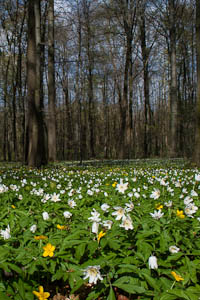 [29] Tree diversity and environmental factors predict herb species richness and cover in Germany"s largest connected deciduous forest
[29] Tree diversity and environmental factors predict herb species richness and cover in Germany"s largest connected deciduous forest
by Vockenhuber E, Scherber C, Seidel D, Langenbruch C, Meißner M, Tscharntke T (2011)
Perspectives in Plant Ecology, Evolution and Systematics 13:111-119 (published online 14th April 2011)
Highlighted as one of the most cited articles since 2009
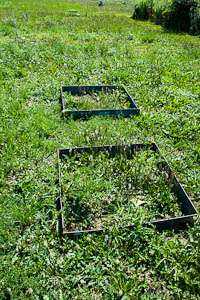 [28] Impact of above and below-ground invertebrates on temporal and spatial stability of grassland of different diversity
[28] Impact of above and below-ground invertebrates on temporal and spatial stability of grassland of different diversity
by Eisenhauer N, Milcu A, Allan E, Nitschke N, Scherber C, Weigelt A, Weisser WW, Scheu S (2011)
Journal of Ecology 99:572–582
by Gladbach DJ, Holzschuh A, Scherber C, Thies C, Dormann CF, Tscharntke T (2011)
Oecologia 166:433-41 (published online 13th December 2010).

[26] Multifunctional shade-tree management in tropical agroforestry landscapes - a review
by Tscharntke T, Clough Y, Bhagwat S, Buchori D, Faust H, Hertel D, Hölscher D, Juhrbandt J, Kessler M, Perfecto, I, Scherber C, Schroth G, Veldkamp E, Wanger T (2011)
Journal of Applied Ecology 48:619–629
2010

[25] Bottom-up effects of plant diversity on multitrophic interactions in a biodiversity experiment ![]()
published online 27th October 2010; see also Supplementary material S1 and S2
by Scherber C, Nico Eisenhauer, Wolfgang W. Weisser, Bernhard Schmid, Winfried Voigt, Markus Fischer, Ernst-Detlef Schulze, Christiane Roscher, Alexandra Weigelt, Eric Allan, Holger Beßler, Michael Bonkowski, Nina Buchmann, François Buscot, Lars W. Clement, Anne Ebeling, Christof Engels, Stefan Halle, Ilona Kertscher, Alexandra-Maria Klein, Robert Koller, Stephan König, Esther Kowalski, Volker Kummer, Annely Kuu, Markus Lange, Dirk Lauterbach, Cornelius Middelhoff, Varvara D. Migunova, Alexandru Milcu, Ramona Müller, Stephan Partsch, Jana S. Petermann, Carsten Renker, Tanja Rottstock, Alexander Sabais, Stefan Scheu, Jens Schumacher, Vicky M. Temperton & Teja Tscharntke (2010)
Nature 468, 553–556 (25 November 2010) (published online 27th October 2010)
Related content:
Official press release by the University of Göttingen
Official press release by the Helmholtz Centre for Environmental Research
Official press release by the Forschungszentrum Jülich
[24] Methane emissions from tank bromeliads in neotropical forests
by Martinson G, Werner FA, Scherber C, Conrad R, Corre MD, Flessa H, Wolf K, Klose M, Gradstein SR, Veldkamp E (2010)Nature Geoscience 3: 766-769.
Related content:
article: Biogeochemistry: Cryptic wetlands.
by Joseph B. Yavitt (2010), Nature Geoscience, DOI: dx.doi.org/doi:10.1038/ngeo999 (Published online 17 October 2010).
by Proulx R, Wirth C, Voigt W, Weigelt A, Roscher C, Attinger S, Baade J, Barnard RL, Buchmann N, Buscot F, Eisenhauer N, Fischer M, Gleixner G, Halle S, Hildebrandt A, Kowalski E, Kuu A, Lange M, Milcu A, Niklaus PA, Oelmann Y, Rosenkranz S, Sabais A, Scherber C, Scherer-Lorenzen M, Scheu S, Schulze ED, Schumacher J, Schwichtenberg G, Soussana J-F, Temperton VM, Weisser WW, Wilcke W, Schmid B (2010)
PLoS One 5(10): e13382.
 [22] Book review: Biodiversity, Ecosystem Functioning, and Human Wellbeing—An Ecological and Economic Perspective
[22] Book review: Biodiversity, Ecosystem Functioning, and Human Wellbeing—An Ecological and Economic Perspective
by Scherber C (2010)
Basic and Applied Ecology 11: 752.
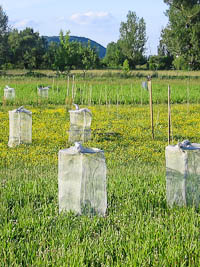 [21] Functional identity versus species richness: herbivory resistance in plant communities
[21] Functional identity versus species richness: herbivory resistance in plant communities
by Scherber C, Heimann J, Köhler G, Mitschunas N, Weisser WW (2010)
Oecologia 163: 707-717.
by Scherber C, Mwangi PN, Schmitz M, Scherer-Lorenzen M, Beßler H, Eisenhauer N, Migunova VD, Weisser WW, Schulze ED, Schmid B (2010)
Journal of Plant Ecology 3 (2): 99-108 (highlighted as most frequently read in July 2011)
© Oxford Journals
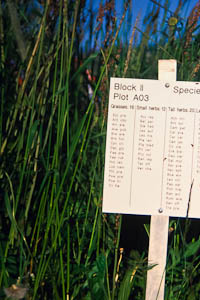
[19] The Jena-Experiment: 6 years of data from a grassland biodiversity experiment
by Weigelt A, Marquard E, Temperton VM., Roscher C, Scherber C, Mwangi PN, Buchmann N, Schmid B, Schulze ED, Weisser WW. (2010)
Ecology 91(3), pp. 930-931
© Ecological Society of America
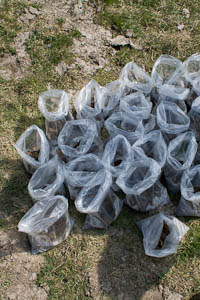
[18] Plant diversity effects on soil microorganisms support the singular hypothesis
by Eisenhauer N, Milcu A, Bessler H, Engels C, Gleixner G, Habekost M, Partsch S, Sabais ACW, Scherber C, Steinbeiss S, Weigelt A, Weisser WW, Scheu S (2010)
Ecology 91(2), pp. 485-496
© Ecological Society of America
 [17] Book Review: Species Richness - Patterns in the Diversity of Life
[17] Book Review: Species Richness - Patterns in the Diversity of Life
by Scherber C (2010)
Basic and Applied Ecology 11(1), p. 95
by Nitschke N, Ebeling A, Rottstock T, Scherber C, Fischer M, Tscharntke T, Weigelt A, Middelhoff C, Weisser WW (2010)
Journal of Plant Ecology 3: 109-121.
2009
[15] Tree diversity drives abundance and spatiotemporal β-diversity of true bugs (Heteroptera)
by Sobek S, Gossner M, Scherber C, Steffan-Dewenter I, Tscharntke T (2009)
Ecological Entomology 34, pp. 772 - 782.
by Sobek S, Tscharntke T, Scherber C, Schiele S & Steffan-Dewenter I (2009)
Forest Ecology and Management 258 (5), 609-615
(image copyright: Susanne Schiele)
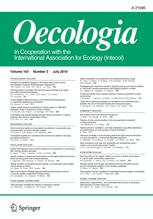
[13] Earthworm and belowground competition effects on plant productivity in a plant diversity gradient
by Eisenhauer N, Milcu A, Nitschke N, Sabais, ACW, Scherber C, Scheu S. (2009)
Oecologia 161 (2), pp. 291-301
© Springer (Open Access by institutional agreement)
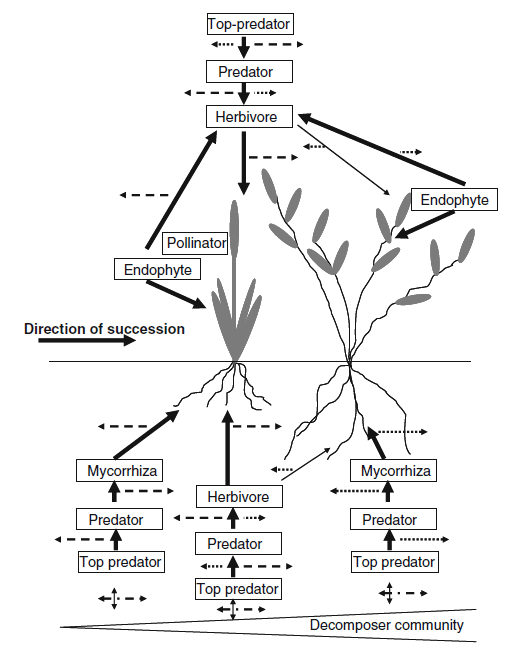 [12] Empirical and theoretical challenges and possible solutions in aboveground-belowground ecology
[12] Empirical and theoretical challenges and possible solutions in aboveground-belowground ecology
by van der Putten WH, Bardgett RD, de Ruiter PC, Hol WHG, Meyer KM, Bezemer TM, Bradford MA, Christensen S, Eppinga MB, Fukami R, Hemerik L, Molofsky J, Schädler M, Scherber C, Strauss SY, Vos M, Wardle DA (2009)
Oecologia 161(1), pp. 1-14
© Springer (Open Access by institutional agreement)
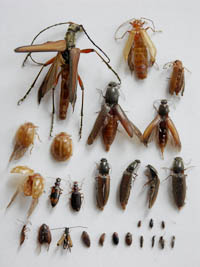 [11] Spatiotemporal changes of beetle communities across a tree diversity gradient
[11] Spatiotemporal changes of beetle communities across a tree diversity gradient
by Sobek S, Steffan-Dewenter I, Scherber C & Tscharntke T (2009)
Diversity and Distributions 15 (4), pp.660 - 670
Image copyright: Susanne Schiele, Stephanie Sobek
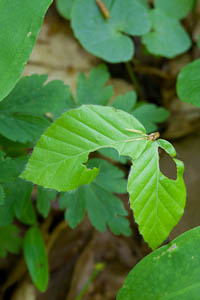
[10] Sapling herbivory, invertebrate herbivores and predators across a natural tree diversity gradient in Germany´s largest connected deciduous forest
by Sobek S, Scherber C, Steffan-Dewenter I, Tscharntke T (2009)
Oecologia 160(2): 279-88
© Springer (Open Access by institutional agreement)
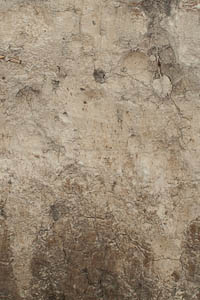
[9] No interactive effects of pesticides and plant diversity on soil microbial parameters
by Eisenhauer N, Klier M, Partsch S, Sabais ACW, Scherber C, Weisser WW & Scheu S (2009)
Applied Soil Ecology 42, 1, 31-36
2008
[8] Diversity and beyond: Plant functional identity determines herbivore performance
by Specht J, Scherber C, Koehler G, Weisser WW (2008)
Journal of Animal Ecology 77, 1047–1055
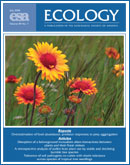
[7] Earthworms and legumes control litter decomposition in a plant diversity gradient
by Milcu A, Partsch S, Scherber C, Weisser WW, Scheu S (2008)
Ecology 89(7): 1872–1882
© Ecological Society of America
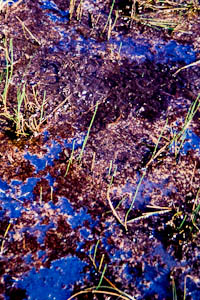
[6] Groundwater level controls CO2, N2O and CH4 fluxes of three different hydromorphic soil types of a temperate forest ecosystem
by Jungkunst H, Flessa H, Scherber C, Fiedler S. (2008)
Soil Biology and Biochemistry 40 (8), pp. 2047-2054
2007
[5] Niche pre-emption increases with species richness in experimental plant communities
by Mwangi PN, Schmitz M, Scherber C, Roscher C, Schumacher J, Scherer-Lorenzen M, Weisser WW, Schmid B (2007)
Journal of Ecology 95, pp. 65-78
2006
by Scherber C, Milcu A, Partsch S, Scheu S, Weisser, WW (2006)
Journal of Ecology 94, pp. 922-931, Blackwell Publishing, Oxford
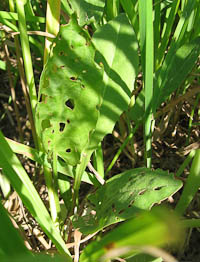
[3] Effects of plant diversity on invertebrate herbivory in experimental grassland
by Scherber C, Mwangi PN, Temperton VM, Roscher C, Schumacher J, Schmid B, Weisser WW (2006)
Oecologia 147, pp. 489-500, Springer Berlin, Heidelberg, New York.
2005
(none)
2004
by Scherber C, Crawley MJ, Porembski S (2004) In: Kuehn, I. & Klotz, S. (eds.) Biological Invasions - Challenges for Science.
Neobiota 3: 41-52, Berlin.
[see http://www.pensoft.net/journals/neobiota for details on this series]
2003
by Scherber C, Crawley MJ, Porembski S (2003)
Diversity and Distributions 9, pp. 415-426, Blackwell Publishing, Oxford.
Theses
Scherber, C. (2012) Biodiversity and multitrophic interactions in changing terrestrial ecosystems. Habilitation Thesis, University of Göttingen, 258 pp.
Scherber, C. (2006) Invertebrate herbivory, plant diversity and ecosystem processes in experimental grassland. Dissertation, University of Jena, 122 pp.
Scherber, C. (2002) The effects of herbivory and competition on Senecio inaequidens DC (Asteraceae), an invasive alien plant. Diploma Thesis, Read-only version or purchase purchase online.
Scherber, C. (2002) Biologische Invasionen - Der Neophyt Senecio inaequidens als Indikator einer beschleunigten Welt. German Students Award competition entry.
Braun, C., Gründl, M., Marberger, C. & Scherber, C. (2001). Beautycheck - Ursachen und Folgen von Attraktivität. German Students Award - 2nd prize, Awarded by the Körber Foundation.
Scherber, C. (1997) Die Tier- und Pflanzenwelt im Naturschutzgebiet "Bernrieder Filz". Jugend forscht-Arbeit / German Competition for Young People in the field of Science and Technology .
Scherber, C. (1996) Renaturierungsmaßnahmen im Naturschutzgebiet "Bernrieder Filz". Facharbeit, Max-Planck-Gymnasium Muenchen-Pasing. Available on request
Conference contributions
2021
Thiele S, Haalck L, Struffert M, Scherber C, Risse B (2020) Towards Visual Insect Camera Traps. In: Fisher R, Hallam J, Palazzo S (eds) 25th International Conference on Pattern Recognition - Workshop 46: Visual observation and analysis of vertebrate and insect behavior, Milano
Ajal J, Kiær LP, Pakeman RJ, Scherber C, Weih M (2021) Multi-dimensional trait space in cereal-legume mixtures: an analysis across environments and plant teams. Aspects of Applied Biology - Intercropping for sustainability: Research developments and their application
2019
Scherber C (2019) A network perspective on biodiversity effects in real-world farming systems. GfÖ Conference Münster 2019.
Scherber C (2019) Farming for the future: Approaches to reconcile biodiversity and production in European farming systems. GfÖ Conference Münster 2019.
Scherber C (2019) Humans as the world´s greatest evolutionary force: Conserving biodiversity in human-modified landscapes. Münster Graduate School of Evolution Symposium.
Meyer M, Ott D, Scherber C (2019) Influence of temporal diversification on aboveground arthropods. Crop Diversification Conference, Budapest
Brandmeier J, Pappagallo S, Hollens-Kuhr H, Scherber C (2019) Cereal-legume mixtures in organic and conventional agriculture positively affect flower visitor abundance and diversity. Crop Diversification Conference, Budapest
2018
Pappagallo S, Brandmeier J, Scherber C (2018) Effects of agrobiodiversity on pest control in Vicia faba L. Pages 82-83 in: J. Baćanović-Šišić, D. Dennenmoser, and M. R. Finckh, eds., Symposium on Breeding for Diversification: A Joint Meeting of the EUCARPIA Section Organic and Low-Input Agriculture, ECO-PB, and the projects LIVESEED, INSUSFAR, DIVERSify, HealthyMinorCereals, ReMIX and Wheatamix, 19.–21. February 2018, University of Kassel, Witzenhausen, Germany. Kassel University Press. (oral presentation)
Meyer M, Koch H.-J., Scherber C (2018) Functional groups are differentially sensitive to temporal diversification in agricultural landscapes. Proceedings of the GfÖ, Vienna, Austria.
Karley AJ, Newton AC, Brooker RW, Pakeman RJ, Guy D, Mitchell C, Iannetta PPM, Weih M, Scherber C, Kiær L (2018). DIVERSify-ing for sustainability using cereal-legume ‘plant teams’. Aspects of Applied Biology, 138, 57-62. (oral presentation)
2017
Meyer M., Koch H.-J., Scherber C (2017) Influence of temporal diversification on invertebrate communities in a long-term crop-rotation experiment. Proceedings of the 1st International Conference on Community Ecology, Budapest, Hungary. © Akadémiai Kiadó, Budapest, 2017 (won the 2nd prize of the Young Community Ecologist Award)
Wemheuer F, Wemheuer B, Everwand G, Kretzschmar D, Daniel R, Scherber C, Vidal S (2016) Deciphering the bacterial response in the rhizosphere towards different management regimes and short-term herbivory in permanent German grasslands. 3rd Thünen Symposium on soil metagenomics – From gene predictions to systems ecology, Braunschweig, Germany, 14-16 December 2016 (oral presentation)
Tiede J, Guiz, J, Hillebrand, H & Scherber C (2018). Plant diversity-driven changes in consumer stoichiometry have consequences for reproductivity. 48th Conference of the Ecological Society of Germany, Austria and Switzerland (GfÖ), Vienna, AE (oral presentation).
2017
Schaub L, Pirhofer-Walzl K, Scherber C, Joshi J. (2017) How much does landscape diversity contribute to yield in winter-wheat fields? Joint Annual Meeting BES, GfÖ and NecoV, Ghent, Belgium. (oral presentation)
Tiede J, Wemheuer B, Traugott M, Daniel R, Tscharntke T, Ebeling A & Scherber C (2017). Multitrophic interactions in a plant diversity experiment analyzed by gut content metabarcoding. Ecology Across Borders: Joint Annual Meeting of the BES, GFÖ, NecoV and EEF, Ghent, BE (oral presentation).
Tiede J, Wemheuer B, Traugott M, Daniel R, Tscharntke T, Ebeling A & Scherber C (2017). Multitrophic interactions in a plant diversity experiment analyzed by gut content sequencing. 3rd Symposium on Molecular Analysis of Trophic Interactions & 3rd Symposium on Ecological Networks (MTI-3), Uppsala, SWE (oral presentation).
2016
Tiede J, Wemheuer B, Traugott M, Daniel R, Tscharntke T, Ebeling A & Scherber C (2016). Plant diversity affects multitrophic interactions in an experimental grassland. 46th Conference of the Ecological Society of Germany, Austria and Switzerland (GfÖ), Marburg, DE (oral presentation).
Schaub L, Pirhofer-Walzl K, Scherber C, Joshi J (2016) Do soil-borne ecosystem services react to landscape diversity in agriculture? 46th Conference of the Ecological Society of Germany, Austria and Switzerland (GfÖ), Marburg, DE (oral presentation)
2015
Tiede J, Zwaan C, Tscharntke T & Scherber C (2015). Movement patterns of nocturnal ground beetles in a grassland with manipulated plant diversity. 45th Conference of the Ecological Society of Germany, Austria and Switzerland (GfÖ), Göttingen, DE (oral presentation)
Tiede J, Wemheuer B, Traugott M, Daniel R, Tscharntke T, Ebeling A & Scherber C (2015). How omnivores respond to plant species richness: Analyzing gut contents with next-generation sequencing. 100th Meeting of the Ecological Society of America (ESA), Baltimore, MD, USA (oral presentation).
Schaub L, Pirhofer-Walzl K, Olschewski R, Alvaro Fuentes J, Fontaine S, Kayler ZE, Petermann J, Rillig MC, Voltas J, Scherber C, & Joshi J (2015) BASIL - Balancing Ecosystem Services in Landscape - A call on „Promoting synergies and reducing trade-offs between food supply, biodiversity and ecosystem services“, Pecha culcha: Global Soil Week, Berlin, GER (oral presentation)
2014
Tiede J, Tscharntke T, Daniel R, Traugott M, Wemheuer B, Scherber C (2014) Feeding behavior of an omnivorous ground beetle in a grassland with manipulated plant diversity. 44th Annual Conference of the Ecological Society of Germany, Austria and Switzerland (GfÖ) 44: 103-104, Gesellschaft für Ökologie, University of Hildesheim. (oral presentation)
Normann C, Scherber C, Tscharntke T (2014) Wie beeinflussen Baumartenvielfalt und Randeffekte die Artenvielfalt von Krautschichtpflanzen und Laufkäfern in Wäldern? BfN Skripten 370: 75-80. Bundesamt für Naturschutz, Bonn. (oral presentation)
2013
Beduschi T, Scherber C, Tscharntke T (2013) Landscape and local drivers of pollen beetle dynamics and parasitism. Proceedings of the Annual conference of the Ecological Society of Germany, Austria and Switzerland (GFÖ), Potsdam, September 2013.
Hillebrand H & Scherber C (2013) Biodiversity dynamics: understanding communities across trophic levels. Organized oral session at the Annual conference of the Ecological Society of Germany, Austria and Switzerland (GFÖ), Potsdam, September 2013
Normann C, Scherber C, Tscharntke T (2013) Does tree diversity change forest edge effects on carabid beetle communities? Proceedings of the Annual conference of the Ecological Society of Germany, Austria and Switzerland (GFÖ), Potsdam, September 2013
Scherber C, Gladbach DJ, Stevnbak K, Karsten RJ, Schmidt IK, Michelsen A, Albert KR, Larsen KS, Mikkelsen TN, Beier C, Christensen S (2013) Multi-factor climate change effects on plant-herbivore and above-belowground interactions. Open Landscapes Conference, Hildesheim, September-October 2013. Annual Meeting of the Ecological Society of Germany, Austria and Switzerland,
Scherber C & Rösch V (2013) Fragmentation and management of calcareous grasslands. Session chair, Open Landscapes – Ecology, Management and Nature Conservation, Hildesheim, Germany, 29 Sept – 3 Oct 2013 Open Landscapes 2013
Rösch V, Scherber C, Tscharntke T, Batáry P (2013) Small versus large fragments of calcareous grasslands: Soecues richness is similar but community composition differs across four taxa. Open Landscapes – Ecology, Management and Nature Conservation, Hildesheim, Germany, 29 Sept – 3 Oct 2013 Open Landscapes 2013
Scherber C, Gladbach DJ, Stevnbak K, Karsten RJ, Schmidt IK, Michelsen A, Albert KR, Larsen KS, Mikkelsen TN, Beier C, Christensen S (2013) Multi-factor climate change effects on plant-herbivore and above-belowground interactions. Proceedings of the Annual conference of the Ecological Society of Germany, Austria and Switzerland (GFÖ), Potsdam, September 2013
Scherber C (2013) Effects of climate change on insect herbivores in managed ecosystems. 2013 Entomological Conference of the DGAaE (German Society for general and applied Entomology), Göttingen, Germany. 2013 Entomological Conference of the DGAaE
Kormann U, Scherber C, Hadley A, Betts M, Klein N, Larbig M, Tscharntke T (2013) Living fencerows promote gap crossing behavior in hummingbirds. Proceedings of the Annual conference of the Ecological Society of Germany, Austria and Switzerland (GFÖ), Potsdam, September 2013
Beduschi T et al. (2013) Landscape and local drivers of pollen beetle dynamics and parasitism.Annual Meeting of the Ecological Society of Germany, Austria and Switzerland, Potsdam.
2012
Venjakob C, Leonhardt S, Scherber C, Klein AM (2012) Sugars and amino acid composition in nectar of two plant species along a plant diversity gradient. Proceedings of the Annual conference of the Ecological Society of Germany, Austria and Switzerland (GFÖ)
Steckel J, Bellach M, Rothenwöhrer C, Erasmi S, Peters MK, Scherber C, Tscharntke T, Westphal C, Steffan-Dewenter I (2012) Ecological processes and biodiversity of solitary hymenoptera are more affected by landscape than local land use factors. Proceedings of the Annual conference of the Ecological Society of Germany, Austria and Switzerland (GFÖ)
Bellach M, Steckel J, Rothenwöhrer C, Erasmi S, Scherber C, Tscharntke T, Westphal C, Steffan-Dewenter I (2012) Effects of agricultural intensification in grasslands differ between wild bee species groups and geographical regions. Proceedings of the Annual conference of the Ecological Society of Germany, Austria and Switzerland (GFÖ)
Scherber C, Birkhofer K (2012) Multitrophic interactions in agricultural landscapes. Session chair at the Annual conference of the Ecological Society of Germany, Austria and Switzerland (GFÖ)
Scherber C, Kormann U, Batary P, Tscharntke T (2012) Choosing between types of linear models in the analysis of species richness data in fragmented landscapes. International Statistical Ecology Conference 2012, Sundvolden, Oslo (Norway)
Kormann U, Scherber C et al (2012) Landscape context affects the relative importance of grassland fragmentation and management for insect communities. 3rd European Congress of Conservation Biology, 28th August-1st September 2012, Glasgow (UK)
Everwand C, Scherber C et al (2012) Leafhopper diversity can profit from moderate mowing and fertilization in a grassland biodiversity experiment. 3rd European Congress of Conservation Biology, 28th August-1st September 2012, Glasgow (UK)
Rösch V, Scherber C, Tscharntke T, Batary P (2012) Differences in ß-diversity between large and small fragments of calcareous grassland. 3rd European Congress of Conservation Biology, 28th August-1st September 2012, Glasgow (UK)
2011
Scherber C (2011) Effects on plant species richness on multitrophic interactions: Results from an eight-year biodiversity experiment. International Scientific Conference "Functions and Services of Biodiversity", University of Göttingen, 20-22nd June 2011 (invited talk).
Rothenwöhrer C, Scherber C, Tscharntke T (2011) Effects of land-use intensification on insect communities at different trophic levels. 2011 Entomological Conference of the DGAaE (German Society for general and applied Entomology)
2010
Ludwig, M., Schlinkert, H., Holzschuh, A., Fischer, C., Scherber, C., Trnka, A., Tscharntke T. & Batáry, P. (2010). Landscape-mediated effects on nest predation in hedges and forest edges. Multitrophic Interactions Workshop, 25-26th March 2010, Göttingen, p. 15.
2009
Scherber, C., Clough Y, Holzschuh A, Klein AM and Teja Tscharntke (2009) Multifunctionality of biodiversity in the agricultural landscape. ESA 2009 Conference of the Ecological Society of America (invited talk), session "Multifunctionality of biodiversity", Albuquerque, New Mexico, USA, August 2009.
K Stevnbak, C Scherber, D Gladbach, Søren Christensen (2009) Climate change strongly affects interaction between herbivorous insects, plants, and rhizosphere biota. IOP Conference Series: Earth and Environmental Science 6 (2009) 042014, IOP Publishing Ltd, doi:10.1088/1755-1307/6/4/042014
Vockenhuber, E., Scherber, C. & T. Tscharntke (2009) The effect of plant diversity on insect communities in a temperate deciduous forest. 39th Annual conference of the Ecological Society of Germany, Austria and Switzerland (GFÖ), Bayreuth, 14-18 September 2009
Vockenhuber, E., Scherber, C. & T. Tscharntke (2009) Insect and herb communities along a forest tree diversity gradient. 2009 Entomological Conference of the DGaaE (German Society for general and applied Entomology)
Gladbach, D., Scherber, C., Tscharntke, T., Mikkelsen, A. & C. Beier (2009) Effects of Climate Change on Aboveground Trophic Interactions.2009 Entomological Conference of the DGaaE (German Society for general and applied Entomology)
Gladbach, D., Thies, C., Scherber, C., Holzschuh, A., Dormann, C.F. & T. Tscharntke (2009) Effects of local and regional landscape features on multitrophic plant-insect interactions.2009 Entomological Conference of the DGaaE (German Society for general and applied Entomology)
von Fragstein, M, Ksinsik, M., Scherber, C., Holzschuh, A., Schütz S. & T. Tscharntke (2009) Plant insect interactions on Aspen (Populus tremula) differing in genetic origin. 2009 Entomological Conference of the DGaaE (German Society for general and applied Entomology)
2008
Richter, A.K., Y. Oelmann, C. Scherber, W.W. Weisser & W. Wilcke: Does herbivory influence the nitrogen and phosphorus dynamics in throughfall and soil solution? Proceedings of the EURECO - GFOE , 15.-19. Sept. 2008, Leipzig (Germany).
Scherber, C., Ebeling, A., Eisenhauer, N., Fischer. M., Halle, S., Klein, A.-M., Milcu, A., Rottstock, T., Sabais, A., Scheu, S., Voigt, W., Schmid, B., Schulze, E.-D., Weisser, W.W., Tscharntke, T. (2008) Responses of Ecosystem Components to Biodiversity Change. German-American Frontiers of Science Symposium (GAFOS) 2008, Potsdam, Germany (Alexander von Humboldt Foundation).
2005-2007
Scherber, C.,Weisser, W.W. (2005) Plant diversity and invertebrate herbivory in experimental grassland ecosystems. Proceedings of the Annual Meeting of the British Ecological Society, University of Hertfordshire, UK, 5 - 7 September 2005.
Scherber, C., Weisser, W.W. (2005) Effects of plant diversity on invertebrate herbivory in grasslands. Proceedings of the Gesellschaft für Ökologie 35, 147.
Specht, J., Scherber, C., Köhler, G., Weisser, W.W. (2005) The relationship between plant diversity and fitness of the Common Grasshoper, Chorthippus parallelus ZETT. (Orthoptera: Acrididae). Proceedings of the Gesellschaft für Ökologie 35, 149.
2002-2005
Scherber, C. (2002) The effects of herbivory and competition on Senecio inaequidens DC (Asteraceae), an invasive alien plant. Proceedings of the 2nd International Conference of the German Working Group on Biological Invasions “Neobiota” – Biological Invasions: Challenges for Science: p. 53, October 10th-12th, 2002
Talks
2019
Scherber C (2019) Der Rückgang von Insekten: Dynamik, Ursachen und Lösungsansätze. Konferenz der Arten, Bonn.
Scherber C (2019) Humans as the world´s greatest evolutionary force: Conserving biodiversity in human-modified landscapes. Münster Graduate School of Evolution Symposium.
Scherber C (2019) Wie kann die Landwirtschaft die Vielfalt von Insekten fördern? Vortrag an der Hochschule Osnabrück
Scherber C (2019) Workshop „Insektenmonitoring“. Tagung „Rückgang der Insekten: Kenntnisstand - Forschungen – Aktivitäten“, 16.2.2019, Institute of Landscape Ecology, Münster, Germany
2018
Scherber C (2018) Der Rückgang der Insektenvielfalt in Deutschland - was wissen wir, und was muss getan werden? Vortrag im Zoo Köln, 11.12.2018.
Scherber C (2018) Wie kann die Landwirtschaft die Vielfalt von Insekten fördern? Fachsymposium Landwirtschaft: Insektensterben – Bedeutung und Einfluss der Landwirtschaft. Hochschule Osnabrück, 20.11.2018
Scherber C (2018) Was kostet uns der Verlust von Insekten? Grüne Artenschutzkonferenz, Münster, 17.3.2018.
Scherber C (2018) Untersuchungen zur Ökologie von Senecio jacobaea unter extensiver Beweidung: Ergebnisse der letzten drei Jahre. Informationsveranstaltung des NABU Münsterland, „Umgang mit dem Jakobs-Kreuzkraut“, 8.11.2018
Scherber C (2018) Die Biodiversität von Insekten im Kontext: Erkenntnisse aus Forschungsprojekten in Wald, Grünland und Ackerland – NRW-weite Insektentagung am Institut für Landschaftsökologie, 22.2.2018
Scherber C (2018) Insekten im komplexen Netzwerk der Natur: Erkenntnisse aus Forschungsprojekten in Wald, Grünland und Ackerland. Tagung „Der Wert von Insekten -Beiträge von Unternehmen und der Gesellschaft zum Erhalt der Biodiversität“ Bielefeld, 9.11.217, Bertelsmann-Stiftung
Scherber C (2018) Das Jakobs-Kreuzkraut: Managementstrategien und Biodiversität im Bereich der Emsaue Vadrup. Interner Vortrag im LANUV.
Scherber C (2018) Enhancing biodiversity in European agroecosystems: Novel insights from intercropping and crop rotation experiments. University of Würzburg, Animal ecology seminar.
2017
Scherber C (2017) Linkages between biodiversity, multitrophic communities and ecosystem functions: Looking back and moving forward . Symposium "15 Years of the Jena Experiment: The Past, the Present, and the Future", Jena, Germany.
Scherber C (2017) Model-based approaches to community ecology. Institute for Geoinformatics, University of Münster, Seminar "Geoinformatics Forum"
2016
Scherber C (2016) Combining classical and molecular methods to unravel multitrophic interactions. Linnean Center for Plant Biology, Uppsala, Sweden (invited talk), 7-8 Nov 2016
Scherber C (2016) How important is plant biodiversity for ecosystems and human well-being? Lessons from biodiversity experiments. Linnean Center for Plant Biology, Uppsala, Sweden (invited talk), 7-8 Nov 2016
Scherber C (2016) Global change effects on insect performance in field experiments. Münster Graduate School of Evolution, Seminar Series „Evolution across Fields“, invited talk.
Scherber C (2016) Der Rückgang von Insekten in der Landschaft:Wo liegen die Ursachen? Jahrestreffen des Landesfachausschusses Fledermausschutz NRW, Intitut für Landschaftsökologie, Münster.
Scherber C (2016) Erprobung von Regulationsmethoden für das Jakobs-Kreuzkraut. Informationsveranstaltung „Umgang mit Jakobskreuzkraut“, NABU-Naturschutzstation Münsterland, 5 October 2016 (invited talk)
Scherber C (2016) Global change effects on multitrophic aboveground-belowground interactions. Julius Kühn Institute, Braunschweig (invited talk)
2014
Scherber C (2014) Plant diversity, global change, and multitrophic interactions. Biosciences research seminar series, Swansea University, UK
Tiede J, Tscharntke T, Daniel R, Traugott M, Wemheuer B, Scherber C (2014) Feeding behavior of an omnivorous ground beetle in a grassland with manipulated plant diversity. 44th Annual
Conference of the Ecological Society of Germany, Austria and Switzerland (GfÖ) 44: 103-104, Gesellschaft für Ökologie, University of Hildesheim.
Normann C, Scherber C, Tscharntke T (2014) Wie beeinflussen Baumartenvielfalt und Randeffekte die Artenvielfalt von Krautschichtpflanzen und Laufkäfern in Wäldern? BfN Skripten 370: 75-80. Bundesamt für Naturschutz, Bonn.
2013
Beduschi T, Scherber C, Tscharntke T (2013) Landscape and local drivers of pollen beetle dynamics and parasitism. Proceedings of the Annual conference of the Ecological Society of Germany, Austria and Switzerland (GFÖ), Potsdam, September 2013.
Hillebrand H & Scherber C (2013) Biodiversity dynamics: understanding communities across trophic levels. Organized oral session at the Annual conference of the Ecological Society of Germany, Austria and Switzerland (GFÖ), Potsdam, September 2013
Normann C, Scherber C, Tscharntke T (2013) Does tree diversity change forest edge effects on carabid beetle communities? Proceedings of the Annual conference of the Ecological Society of Germany, Austria and Switzerland (GFÖ), Potsdam, September 2013
Scherber C, Gladbach DJ, Stevnbak K, Karsten RJ, Schmidt IK, Michelsen A, Albert KR, Larsen KS, Mikkelsen TN, Beier C, Christensen S (2013) Multi-factor climate change effects on plant-herbivore and above-belowground interactions. Open Landscapes Conference, Hildesheim, September-October 2013. Annual Meeting of the Ecological Society of Germany, Austria and Switzerland,
Scherber C & Rösch V (2013) Fragmentation and management of calcareous grasslands. Session chair, Open Landscapes – Ecology, Management and Nature Conservation, Hildesheim, Germany, 29 Sept – 3 Oct 2013 Open Landscapes 2013
Rösch V, Scherber C, Tscharntke T, Batáry P (2013) Small versus large fragments of calcareous grasslands: Soecues richness is similar but community composition differs across four taxa. Open Landscapes – Ecology, Management and Nature Conservation, Hildesheim, Germany, 29 Sept – 3 Oct 2013 Open Landscapes 2013
Scherber C, Gladbach DJ, Stevnbak K, Karsten RJ, Schmidt IK, Michelsen A, Albert KR, Larsen KS, Mikkelsen TN, Beier C, Christensen S (2013) Multi-factor climate change effects on plant-herbivore and above-belowground interactions. Proceedings of the Annual conference of the Ecological Society of Germany, Austria and Switzerland (GFÖ), Potsdam, September 2013
Scherber C (2013) Effects of climate change on insect herbivores in managed ecosystems. 2013 Entomological Conference of the DGAaE (German Society for general and applied Entomology), Göttingen, Germany. 2013 Entomological Conference of the DGAaE
Kormann U, Scherber C, Hadley A, Betts M, Klein N, Larbig M, Tscharntke T (2013) Living fencerows promote gap crossing behavior in hummingbirds. Proceedings of the Annual conference of the Ecological Society of Germany, Austria and Switzerland (GFÖ), Potsdam, September 2013
Beduschi T et al. (2013) Landscape and local drivers of pollen beetle dynamics and parasitism.Annual Meeting of the Ecological Society of Germany, Austria and Switzerland, Potsdam.
2012
Scherber C, Kormann U, Batary P, Tscharntke T (2012) Choosing between types of linear models in the analysis of species richness data in fragmented landscapes. International Statistical Ecology Conference 2012, Sundvolden, Oslo (Norway)
Scherber C (2012) Global change experiments and multitrophic interactions. CNRS Centre d"Etudes Biologique de Chizé (France), 29th March 2012 (invited talk)
2011
Scherber C (2011) Plant diversity and multitrophic interactions in experimental grassland ecosystems. Ecology and Evolution Seminar Series, Imperial College London, Silwood Park, 1st July 2011 (invited talk).
Scherber C (2011) Effects of biodiversity on multitrophic interactions in terrestrial ecosystems. Lecture Series in Ecology and Evolution, University of Bern, Switzerland, 17th May 2011 (invited talk).
Scherber C (2011) Effects of plant species richness on plant-herbivore and multitrophic interactions. Botany Seminars, Department of Agriculture & Ecology, Copenhagen University, 25th March 2011 (invited talk)
Scherber C (2011) Biodiversity and multitrophic interactions in terrestrial ecosystems. University of Rostock, Biologisches Kolloquium, 20th January 2011 (invited talk).
2010
Scherber, C., Clough Y, Holzschuh A, Klein AM and Teja Tscharntke (2010) Multifunctionality of biodiversity in the agricultural landscape. Meeting of the ecology working groups of the University of Göttingen, January 2010.
2009
Gladbach, D. & Scherber, C. (2009) Climaite change effects on growth and survival of herbivorous insects. Workshop "Heathland ecology and management" at the University of Copenhagen, 2nd November 2009.
Scherber, C. (2009) Plant diversity and belowground interactions determine community invasion resistance. Institute Seminar, Göttingen, June 2009.
Scherber, C. (2009) Synthesis of data from large-scale ecological experiments. Internal meeting of the Graduate School "Forest biodiversity", Göttingen.
2008
Scherber, C., Ebeling, A., Eisenhauer, N., Fischer. M., Halle, S., Miclu, A., Rottstock, T., Sabais, A., Scheu, S., Voigt, W., Weisser, W., Tscharntke, T., (2008) Multitrophic Interactions along a gradient in plant species richness. Institute Seminar, Göttingen, April 2008
2007
Scherber, C. (2007) The importance of agri-environemt schemes for biodiversity (Die Bedeutung von Agrarumweltmaßnahmen für die Biologische Vielfalt). Lecture, Kolloquium Phytomedizin und Studienrichtungskolloquium Pflanzenproduktion, Georg-August-Universität Göttingen.
Weisser, W., Scherber, C. (2007) The effect of biodiversity on plant-aphid-predator interactions. Short lecture, Entomologentagung 2007, Innsbruck (Austria).
2006
Scherber, C. (2006) Herbivory and plant diversity in experimental grassland. Institute Seminar, Department of Agroecology, Georg-August-Universität Göttingen.
Specht, J., Scherber, C., Köhler, G., Weisser, W. (2006) The effects of plant diversity on the fitness of the meadow grasshopper, Chorthippus parallelus (Orthoptera: Acrididae). School of Biological Sciences (SBS) Research Seminar Series, University of Auckland, New Zealand.
Scherber, C., Specht, J., Köhler, G., Weisser, W. (2006) Selective herbivory persistently changes the identity of plant functional groups in experimental grassland ecosystems. 4th Biannual IMPRS Symposium, 20 and 21 March 2006, Max-Planck-Institute for Chemical Ecology, Jena.
2005
Scherber, C. (2005) Insect herbivory in grasslands: New insights from The Jena Experiment. Seminar in plant population biology and biodiversity research, Institut für Umweltwissenschaften, Universität Zürich, 14. Dezember 2005.
Scherber, C. (2005) Invertebrate herbivory and plant diversity in The Jena Experiment. Institutsseminar, Institut für ökologie, Friedrich-Schiller-Universität Jena, 27. April 2005.
Scherber, C., Weisser W.W (2005) Invertebrate herbivory. Internal progress report, DFG research group biodiversity, 4th -5th April 2005.
Scherber, C. (2005) Insect herbivory and plant diversity in Rumex acetosa L. (Polygonaceae). 2nd Biannual IMPRS Symposium, Max-Planck-Institute for Chemical Ecology, Jena.
Scherber, C. (2005) Two years of experimental research on herbivory and plant diversity. 1st Biannual IMPRS Symposium, Max-Planck-Institute for Chemical Ecology, Jena.
Scherber, C. (2004) Invertebrate Herbivory, Invertebrate Diversity and Ecosystem Functioning in Experimental Grassland Ecosystems. 1st Biannual IMPRS Symposium, Max-Planck-Institute for Chemical Ecology, Jena
2004
Scherber, C. (2004) From Alaska to the lab: Complex systems research in ecology (in German). German Cancer Research Centre, Heidelberg, Germany, June 2004.
Scherber, C., Weisser, W.W. (2004) Insect herbivory and plant diversity in experimental grassland ecosystems. Multitrophic Interactions Meeting, University of Goettingen, 31st March 2004, Germany.
Scherber, C., Weisser, W.W. (2004) A new sub-experiment on biodiversity, herbivory and stability. Internal project meeting, DFG research group biodiversity, 11th March 2004.
Scherber, C. (2004) Herbivory and plant diversity: a caging experiment. Internal progress report, DFG research group biodiversity, 5th Feb 2004
2003
Scherber, C. (2003) Invertebrate herbivory. Internal progress report, DFG research group biodiversity, 9th -10th December 2003.
Scherber, C., Weisser W.W. (2003) Biodiversität und das Funktionieren von ökosystemen: Warum ist Artenvielfalt wichtig? Botanischer Garten Münster, 7.Oktober 2003.
Scherber, C. (2003) Invertebrate herbivory, invertebrate diversity and ecosystem functioning in experimental grasslands. Institute Seminar, Institute of Ecology, Friedrich-Schiller-Universität Jena, 16. April 2003.
Scherber, C. (2003) Invertebrate herbivory, invertebrate diversity and ecosystem functioning in experimental grasslands. Internal planning paper, DFG research group biodiversity, 3rd March 2003.
2002
Scherber, C. (2002) The effects of herbivory and competition on Senecio inaequidens DC. (Asteraceae), an invasive alien plant. Silwood Seminar Series, Silwood Park, UK, 23rd September 2002.
before 2002
Scherber, C. (1998) Animals and Plants of the ‘ Bernrieder Filz’ Nature Reserve (Bavaria, Municipality of Seeshaupt). Proceedings of the 2nd Conference of the International Carnivorous Plant Society, Botanisches Institut der Universität Bonn.
Scherber, C. (1997) Natur- und Artenschutz im Landkreis Starnberg. Vortrag und Podiumsdiskussion gemeinsam mit E. Rohde-von Saldern, Landratsamt Starnberg. Weßling, Landkreis Starnberg, 16. Oktober 1997
Scherber, C. (1997) Lebensraum Hochmoor. Die Tier- und Pflanzenwelt heimischer Hochmoore – Gefährdung und Schutz. Dia-Vortrag, Seehäusl, Weßling, Landkreis Starnberg, Bund Naturschutz in Bayern e.V.
Scherber, C. (1997) Die paar Frösche – Wozu brauchen wir eigentlich Artenschutz? Podiumsdiskussion mit Christoph Scherber und Dr. Helmut Klein (Bund Naturschutz in Bayern e.V.) sowie Vertretern des Forstamtes Starnberg, 26.März 1997, Fontana die Trevi, Farchach am Starnberger See
Scherber, C. (1997) Lebensraum Hochmoor. Vortrag, Fachgruppe Steingarten und Alpine Stauden der Gesellschaft der Staudenfreunde e.V., München, 28.Juni 1997
Scherber, C. (1997) Lebensraum Hochmoor – Gefährdung und Schutz heimischer Hochmoore. Vortrag, Landesbund für Vogelschutz in Bayern e.V., Kreisgruppe Starnberg.
Scherber, C. (1997) ökologische Untersuchungen im Bernrieder Filz. Vortrag, Mikrobiologische Vereinigung München, 24. September 1997
Scherber, C. (1996) Lebensraum Hochmoor. Vortrag, Bund Naturschutz in Bayern e.V., Ortsgruppe Tutzing (Starnberger See), Bayern, 7. November 1996
Posters
2019
Gutiérrez Y, Phung T, Mumma H, Ambrose-Winters A, Scherber C, Smith CR (2019) Growth and Survival of the Superorganism: Ant Colony Macronutrient Intake and Investment. VI Central European Meeting of the International Union for the Study of Social Insects, Austria, Klosterneuburg (won the 3rd best student poster prize)
2016
Wemheuer F, Wemheuer B, Everwand G, Kretzschmar D, Daniel R, Scherber C, Vidal S (2016) Deciphering the bacterial response in the rhizosphere towards different management regimes and short-term herbivory in permanent German grasslands. 3rd Thünen Symposium on soil metagenomics – From gene predictions to systems ecology, Braunschweig, Germany, 14-16 December 2016
Reininghaus H, Udy K, Scherber C, Tscharntke T (2016): Long-Range Movement of Bumblebees. Deutsche Arbeitsgemeinschaft Statistik in Göttingen, Deutschland.
2015
Reininghaus H, Udy K, Scherber C, Tscharntke T (2015): Fluorescent Bees: a powerful method to track pollinator movements. Annual Meeting of the British Ecological Society, Endinburgh, UK.
Reininghaus H, Udy K, Scherber C, Tscharntke T (2015): Fluorescent Bees: a powerful method to track pollinator movements. Annual Meeting of the Gesellschaft für Ökologie, Göttingen, Germany.
2013
Tiede J, Tscharntke T, & Scherber C (2013). Effects of plant species richness and identity in an experimental grassland community on omnivory of carbabid beetles. 2nd International Symposium on the Molecular Detection of Trophic Interactions (MTI-2), Lexington, KY, USA.
Beduschi T, Scherber C, Tscharntke T (2013) Landscape and local drivers of pollen beetle dynamics and parasitism rates. INTECOL, August 2013, London, UK.
Scherber C, Gladbach DJ, Stevnbak K, Karsten RJ, Schmidt IK, Michelsen A, Albert KR, Larsen KS, Mikkelsen TN, Beier C, Christensen S (2013) Multi-factor climate change effects on insect herbivore performance. INTECOL, August 2013, London, UK.
2012
Normann C, Scherber C, Tscharntke T (2012) Can tree species richness buffer edge effects in temperate deciduous forests? 3rd European Congress of Conservation Biology, 28th August-1st September 2012, Glasgow (UK)
Rösch V, Scherber C, Tscharntke T, Batáry P (2012) Increasing isolation of calcareous grassland fragments negatively affects leafhopper species richness (Auchenorrhyncha). Student Conference on Conservation Science, Cambridge, UK, 20-23rd March 2012.
Everwand G, Scherber C, Tscharntke T (2011): Molluscs respond to biodiversity and grassland management in a functional group removal experiment. International Conference “Functions and Services of Biodiversity”, 20-22nd June 2011, Göttingen.
2010
Everwand G, Scherber C, Tscharntke T (2010) Trophic interactions in a grassland management experiment.40th Annual conference of the Ecological Society of Germany, Austria and Switzerland (GFÖ), Giessen, August 30th-3rd September 2010
Vockenhuber, E., Scherber, C. & T. Tscharntke (2010) Diversity of Diptera in a deciduous forest: The role of tree and herb diversity. IXth European Congress of Entomology, Budapest, Hungary, 22nd-27th August 2010.
2009
Vockenhuber, E., Scherber, C. & T. Tscharntke (2009) The effect of plant diversity on insect communities in a temperate deciduous forest. 39th Annual conference of the Ecological Society of Germany, Austria and Switzerland (GFÖ), Bayreuth, 14-18 September 2009
Vockenhuber, E., Scherber, C. & T. Tscharntke (2009) Insect and herb communities along a forest tree diversity gradient. 2009 Entomological Conference of the DGaaE (German Society for general and applied Entomology)
Gladbach, D., Scherber, C., Tscharntke, T., Mikkelsen, A. & C. Beier (2009) Effects of Climate Change on Aboveground Trophic Interactions.2009 Entomological Conference of the DGaaE (German Society for general and applied Entomology)
Gladbach, D., Thies, C., Scherber, C., Holzschuh, A., Dormann, C.F. & T. Tscharntke (2009) Effects of local and regional landscape features on multitrophic plant-insect interactions.2009 Entomological Conference of the DGaaE (German Society for general and applied Entomology)
von Fragstein, M, Ksinsik, M., Scherber, C., Holzschuh, A., Schütz S. & T. Tscharntke (2009) Plant insect interactions on Aspen (Populus tremula) differing in genetic origin. 2009 Entomological Conference of the DGaaE (German Society for general and applied Entomology)
2008
Scherber, C., Ebeling, A., Eisenhauer, N., Fischer. M., Halle, S., Klein, A.-M., Milcu, A., Rottstock, T., Sabais, A., Scheu, S., Voigt, W., Schmid, B., Schulze, E.-D., Weisser, W.W., Tscharntke, T. (2008) Responses of Ecosystem Components to Biodiversity Change. German-American Frontiers of Science Symposium (GAFOS) 2008, Potsdam, Germany (Alexander von Humboldt Foundation).
before 2008
Scherber, C., Weisser, W.W. (2005) Insect herbivory and plant diversity in Rumex acetosa L. (Polygonaceae). International Max Planck Research School 2nd Biannual Symposium 2005, Jena, Germany.
Scherber, C., Weisser, W.W. (2004) Invertebrate Herbivory, Invertebrate Diversity and Ecosystem Functioning in Experimental Grassland Ecosystems. International Max Planck Research School Biannual Symposium 2004, Jena, Germany.
Journal contributions
Scherber C (2018) Visualizing predictions from multinomial models in R. In: Practical Machine Learning with R – Machine Learning Magazine MLMAG (available at https://mlmag.co/product/practical-machine-learning-in-r/)
Scherber C (2017) Using R to Interpret Interaction Effects in Statistical Models. Software Developer´s Journal, published online January 5, 2017
Scherber C (2012) Using R in combination with Adobe Illustrator CS6 for professional graphics output. Software Developer´s Journal 4/2012.
Book contributions
Saljnikov E, Lavrishchev A, Römbke J, Rinklebe J, Scherber C, Wilke B-M, Tóth T, Blum WEH, Behrendt U, Eulenstein F, Mirschel W, Meyer BC, Schindler U, Urazaliev K, Mueller L (2022) Understanding and Monitoring Chemical and Biological Soil Degradation. In: Saljnikov E, Mueller L, Lavrishchev A, Eulenstein F (eds) Advances in Understanding Soil Degradation. Springer International Publishing, Cham, pp 75-124
Scherber C, Beduschi T, Tscharntke T (2021) A Grid-Based Sampling Approach to Insect Biodiversity Monitoring in Agricultural Landscapes. In: Mueller L, Sychev VG, Dronin NM, Eulenstein F (eds) Exploring and Optimizing Agricultural Landscapes. Springer International Publishing, Cham, pp 415-424
Scherber C, Brandmeier J, Everwand G, Karley AJ, Kiær LP, Meyer M, Ott D, Reininghaus H, Tscharntke T (2021) Using Field Experiments to Inform Biodiversity Monitoring in Agricultural Landscapes. In: Mueller L, Sychev VG, Dronin NM, Eulenstein F (eds) Exploring and Optimizing Agricultural Landscapes. Springer International Publishing, Cham, pp 425-436
Mueller L, Eulenstein F, Mirschel W, Schindler U, Sychev VG, Rukhovich OV, Sheudzhen AK, Romanenkov V, Lukin SM, McKenzie BM, Jones M, Dannowski R, Blum WEH, Salnjikov E, Saparov A, Pachikin K, Hennings V, Scherber C, Hoffmann J, Antrop M, Garibaldi L, Carella DSG, Augstburger H, Schwilch G, Angelstam P, Manton M, Dronin NM (2021) Optimizing Agricultural Landscapes: Measures Towards Prosperity and Sustainability. In: Mueller L, Sychev VG, Dronin NM, Eulenstein F (eds) Exploring and Optimizing Agricultural Landscapes. Springer International Publishing, Cham, pp 91-130
Mueller L, Eulenstein F, Schindler U, Mirschel W, Behrendt U, Sychev VG, Rukhovich OV, Belichenko MV, Sheudzhen AK, Romanenkov VA, Trofimov I, Lukin SM, McKenzie BM, Salnjikov E, Gutorova O, Onishenko L, Saparov A, Pachikin K, Dannowski R, Hennings V, Scherber C, Römbke J, Ivanov AI, Dronin NM (2021) Exploring Agricultural Landscapes: Recent Progress and Opportunities for Eurasia. In: Mueller L, Sychev VG, Dronin NM, Eulenstein F (eds) Exploring and Optimizing Agricultural Landscapes. Springer International Publishing, Cham, pp 55-90
Scherber C, Lavandero B, Meyer KM, Perovic D, Visser U, Wiegand K, Tscharntke T (2012) Scale effects in biodiversity and biological control: methods and statistical analysis. Book Chapter in: Biodiversity and Insect Pests: Key Issues for Sustainable Management, First Edition. Edited by Geoff M. Gurr, Steve D. Wratten, William E. Snyder, Donna M.Y. Read. © 2012 John Wiley & Sons, Ltd. Published 2012 by John Wiley & Sons, Ltd. (April 2012).
Clough Y, Abrahamczyk S, Adams M-O, Anshary A, Ariyanti N, Betz L, Buchori D, Cicuzza D, Darras K, Dwi Putra D, Fiala B, Gradstein SR, Kessler M, Klein A-M, Pitopang R, Sahari B, Scherber C, Schulze CH, Shahabuddin, Sporn S, Stenchly K, Tjitrosoedirdjo SS, Wanger TC, Weist M, Wielgoss A, Tscharntke T. 2009. Biodiversity patterns and trophic interactions in human-dominated tropical landscapes in Sulawesi (Indonesia): plants, arthropods and vertebrates. In Tscharntke T, Leuschner C, Veldkamp E, Faust H, Guhardja E, Bidin A (Eds.) Tropical rainforests and agroforests under global change. Environmental Series, Springer Verlag, Berlin, Germany. ISBN: 978-3-642-00492-6
Other publications
Thonicke K, Rahner, E., Arneth, A., Bonn, A., Borchard, N., Chaudhary, A., Darbi, M., Dutta, T., Eberle, U., Eisenhauer, N., Farwig, N., Flocco, G. C., Freitag, J., Grobe, P., Grosch, R., Grossart, P. H., Grosse, A., Grützmacher, K., Hagemann, N., Hansjürgens, B., Hartman Scholz, A., Hassenrück, C., Häuser, C., Hickler, T., Hölker, F., Jacob, U., Jähnig, S., Jürgens, K., Kramer-Schadt, S., Kretsch, C., Krug, C., Lindner, P., Loft, L., Mann, C., Matzdorf, B., Mehring, M., Meier, R., Meusemann, K., Müller, D., Nieberg, M., Overmann, J., Peters, S. R., Pörtner, L., Pradhan, P., Prochnow, A., Rduch, V., Reyer, C. P. O., Roos, C., Scherber, C., Scheunemann, N., Schroer, S., Schuck, A., Sioen, B. G., Sommer, S., Sommerwerk, N., Tanneberger, F., Tockner, K., van der Voort, H., Veenstra, T., Verburg, P., Voss, M., Warner, B., Wende, W., Wesche, K. (2024)
10 Must Knows from Biodiversity Science 2024
Potsdam : Leibniz Research Network Biodiversity, 72 p.
Scherber, C. (2003) Biologische Kontrolle des Neophyten Senecio inaequidens (Asteraceae) durch ein einheimisches Insekt, Longitarsus jacobaeae (Coleoptera: Chrysomelidae). Neozoen-Newsletter, Allgemeine & Spezielle Zoologie, Universität Rostock.
Scherber, C. (2002): Schönheit siegt. Ursachen und Folgen physischer Attraktivität. Traditio et Innovatio 4, Universität Rostock.
Scherber, C. (2000) Gentechnisch veränderte Lebensmittel und öffentlichkeitsarbeit – Ergebnisse einer interdisiplinären Studie. Tagungsband Innovative und Nachhaltige Agrobiotechnologie in Mecklenburg-Vorpommern, Rostock.
Scherber, C. (2000) Artenturnover – ein Maß für die zeitliche Dynamik in Biozönosen. Online Publication.
Scherber, C. (2000) Fleischfressende Pflanzen. Online Publication.
Scherber, C. (1998) Die Tier- und Pflanzenwelt von Hochmooren am Beispiel des Naturschutzgebiets "Bernrieder Filz" (Südbayern), mit besonderer Berücksichtigung gefährdeter Arten und deren Mobilität. In: Das Taublatt 33, 1/1998, Sonderheft Lebensraum Hochmoor. ISSN 0942-959X
Scherber, C. (1998) Charakteristische Tierarten in Hochmoorbiotopen. In: Das Taublatt 33, 1/1998, Sonderheft Lebensraum Hochmoor. ISSN 0942-959X
Scherber, C. (1998) Anpassungen von Tieren an die Lebensbedingungen im Hochmoor. In: Das Taublatt 33, 1/1998, Sonderheft Lebensraum Hochmoor. ISSN 0942-959X
Scherber, C. (1998) Pflanzenwelt im Moor. In: Das Taublatt 33, 1/1998, Sonderheft Lebensraum Hochmoor. ISSN 0942-959X
Scherber, C. (1998) Tiere und Pflanzen im Lebensraum Hochmoor. In: Das Taublatt 33, 1/1998, Sonderheft Lebensraum Hochmoor. ISSN 0942-959X
Scherber, C. (1998) Allgemeine Definition und Abgrenzung des Lebensraumes "Hochmoor" von anderen Moortypen. In: Das Taublatt 33, 1/1998, Sonderheft Lebensraum Hochmoor. ISSN 0942-959X
Scherber, C. (1998) Moore – eine Einführung. In: Das Taublatt 33, 1/1998, Sonderheft Lebensraum Hochmoor. ISSN 0942-959X
Scherber, C. (1997) Leben im Hochmoor. Veröffentlichung der Jugend-forscht-Arbeit See also Journal of Ornithology 139 (3), July1998
Scherber, C. (1997) Renaturierungsmaßnahmen im Naturschutzgebiet "Bernrieder Filz". Ausfertigung als Auftragsarbeit für das Gemeindearchiv der Gemeinde Seeshaupt, Starnberger See, Bayern.
Scherber, C. (1996) Knollenbildende Sonnentau-Arten für jedermann!? Zur Kultur australischer Drosera - Arten der Sektionen Ergaleium, Stolonifera und Erythrorhiza. Das Taublatt 27, 1/1996
Scherber, C. (1996) Renaturierungsmaßnahmen im Naturschutzgebiet "Bernrieder Filz". Ausfertigung als Auftragsarbeit für das Bayerische Landesamt für Umweltschutz, Bibliothek des Bayerischen Landesamts für Umweltschutz.
Scherber, C. (1993) Champignons Carnivores - vue d´ensemble des especes. Dionée (in French).
Scherber, C. (1993) Carnivore Pilze - eine Artenübersicht. Das Taublatt 21, 2/1993.
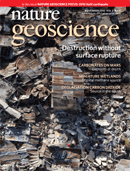

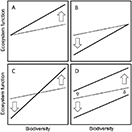 [71]
[71]  [62]
[62] 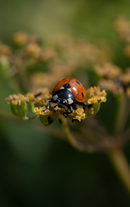 [51]
[51] 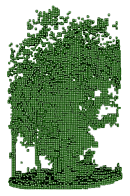 [47]
[47] 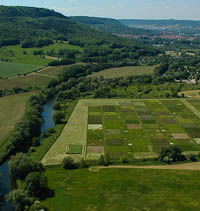
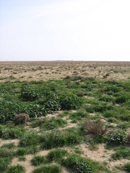
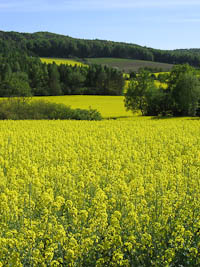 [27] Crop-noncrop spillover: arable fields affect trophic interactions on wild plants in surrounding habitats
[27] Crop-noncrop spillover: arable fields affect trophic interactions on wild plants in surrounding habitats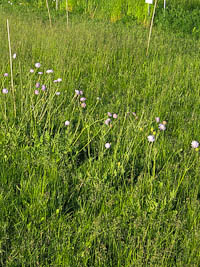 [20] Biodiversity and belowground interactions mediate community invasion resistance against a tall herb invader
[20] Biodiversity and belowground interactions mediate community invasion resistance against a tall herb invader